Special Report
Biggest Summer Blockbuster Each Year Since 1975
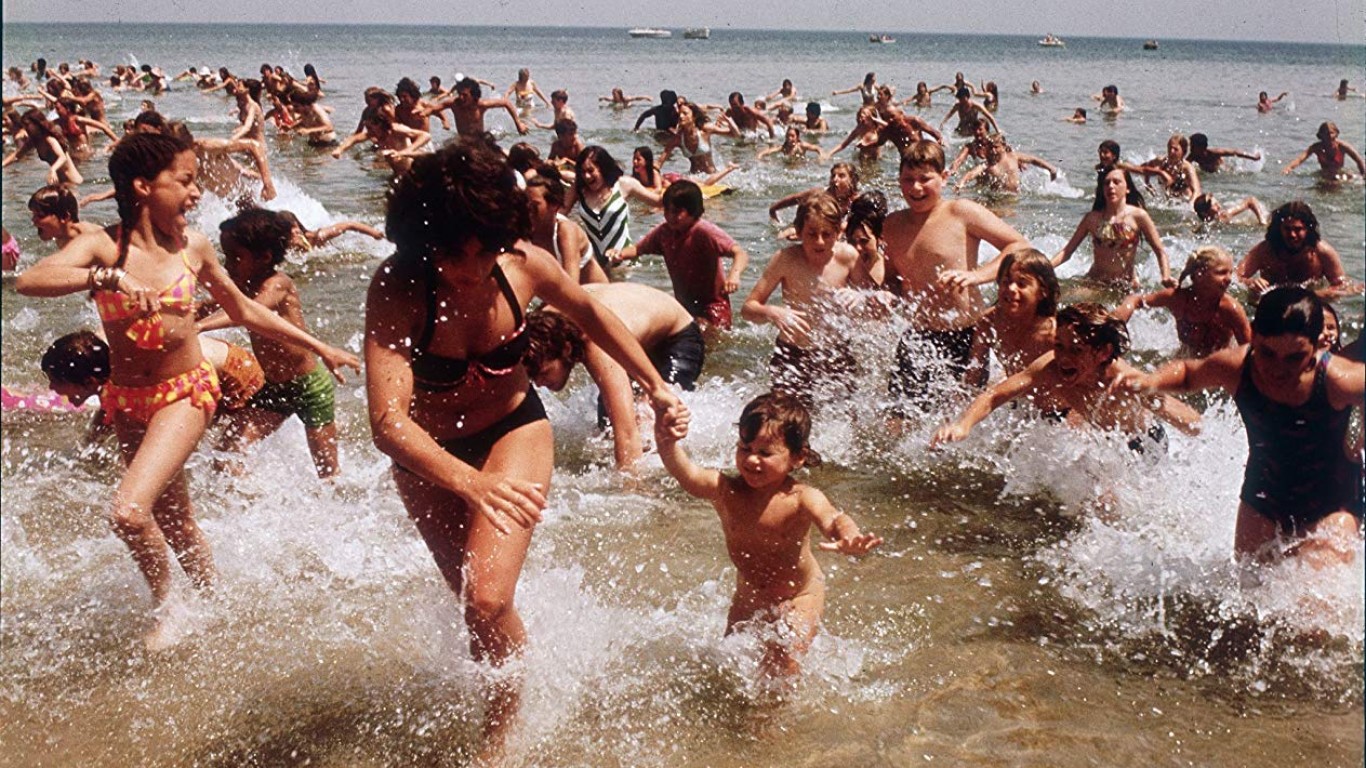
Published:
Last Updated:

Going to the movies is one of the best ways to beat the summer heat. Not only do you get to cool off in a dark, air-conditioned cinema (and maybe enjoy a cold drink), but you also get to take in the latest blockbuster spectacle out of Hollywood.
Many point to the release of Steven Spielberg’s “Jaws” in 1975, along with “Star Wars” in 1977, as the birth of the summer blockbuster — movies with big budgets and even bigger returns. These movies are oftentimes accompanied by large marketing campaigns and extensive merchandising. Prior to “Jaws,” the summer season was not generally considered the best time to release movies that were expected to be major hits. But that has changed and since then some of the top grossing movies of all time were released in the summer.
24/7 Tempo has identified the biggest summer blockbuster each year since 1975 — or, beginning with “Jaws” — based on domestic box office data provided by box office reporting service Box Office Mojo. Dollar amounts have been included as both adjusted and unadjusted for ticket price inflation for comparison’s sake.
Many of the biggest summer blockbusters involve superheroes such as Batman, Spider-Man, and Wonder Woman. In recent years, movies released as part of the Marvel Cinematic Universe have been among audience’s favorites. As franchise films have been growing in popularity at the summer box office for the past 40 years — again, since “Star Wars” first came out in 1977 — movies without sequels, such as “Who Framed Roger Rabbit,” are becoming increasingly rare.
Click here to see the biggest summer blockbuster each year since 1975.
To determine the biggest summer blockbuster every year since 1975, 24/7 Tempo reviewed the lifetime domestic box office gross of all films that were released during the summer from movie data site Box Office Mojo. For the purposes of this article, the summer season is defined as the first Friday in May through Labor Day Weekend. We included both domestic gross adjusted for ticket price inflation and not adjusted. Production budgets are often estimates as reported by Box Office Mojo. In certain cases, these figures are from Box Office Mojo’s parent site, the Internet Movie Database.
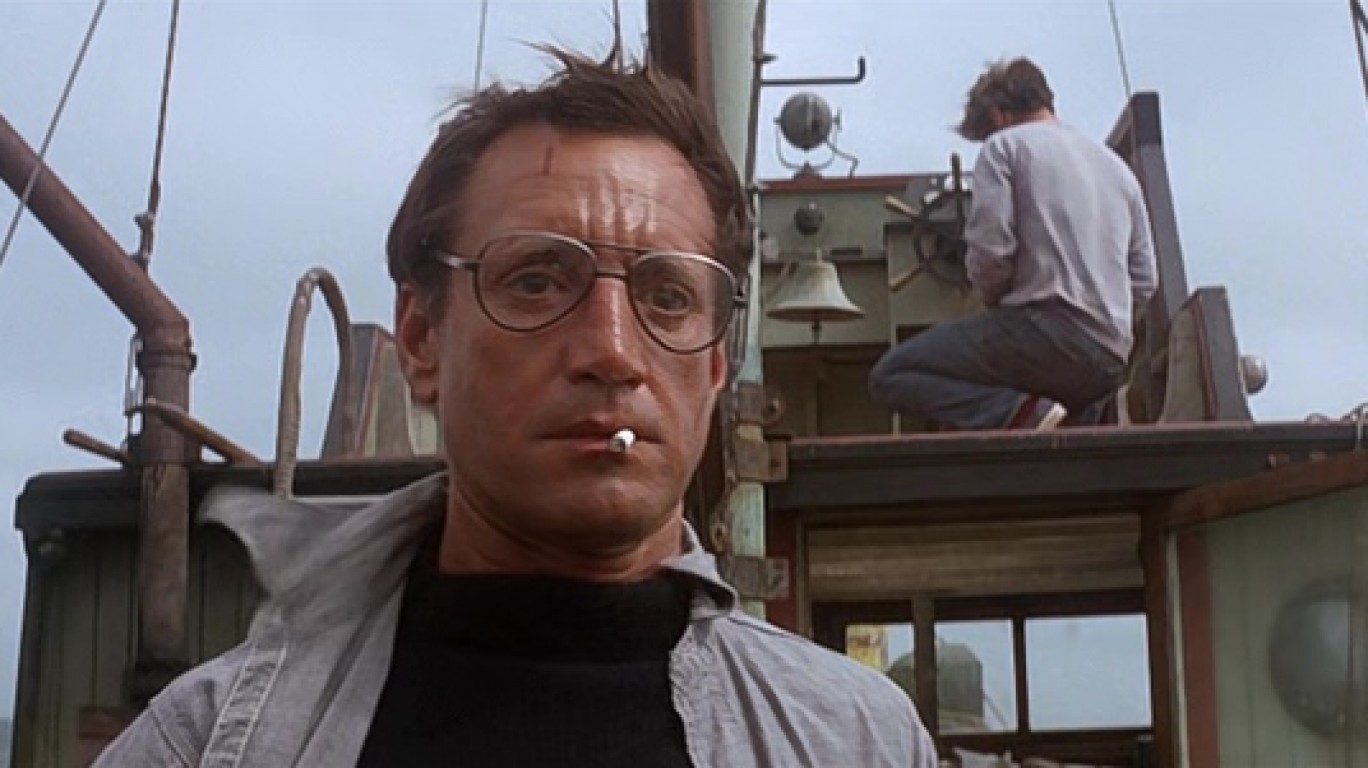
1975
> Biggest summer blockbuster: Jaws
> Domestic gross (adjusted for inflation): $1.15 billion
> Domestic gross (unadjusted): $260.0 million
> Production budget (unadjusted): $7.0 million
“Jaws” is based on Peter Benchley’s novel about an enormous Great White Shark that terrorizes a fictional New England coast town. The film vaulted Steven Spielberg into the forefront of America’s directors. The cast includes Robert Shaw as the Captain Ahab-esque shark hunter, Roy Scheider as the town’s sheriff, and Richard Dreyfuss as a marine biologist.
[in-text-ad]
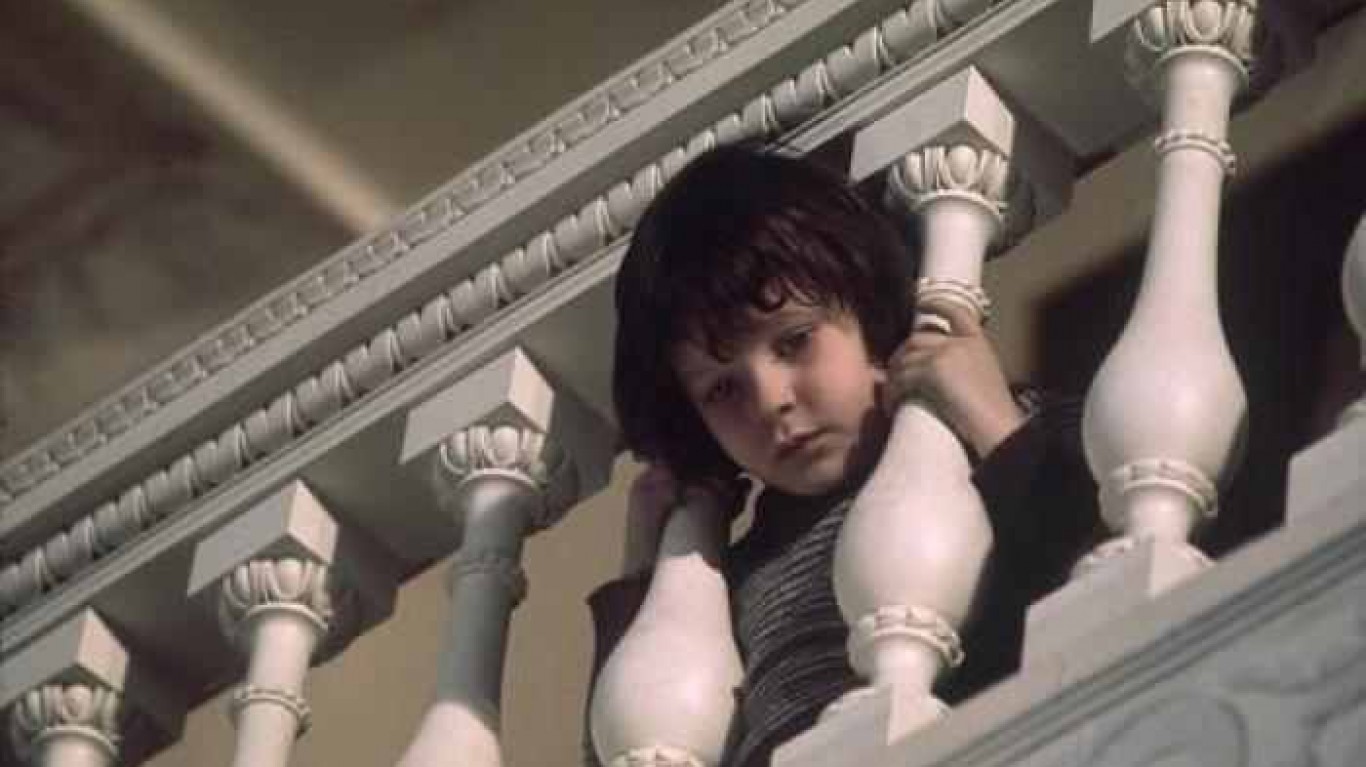
1976
> Biggest summer blockbuster: The Omen
> Domestic gross (adjusted for inflation): $257.7 million
> Domestic gross (unadjusted): $60.9 million
> Production budget (unadjusted): $2.8 million
Three years after “The Exorcist” shocked audiences with its depiction of demonic possession, the devil showed up again in cinema. Gregory Peck and Lee Remick play the parents of a demon seed in “The Omen,” one of the most harrowing movies of all time. Those who try to thwart the prophecy of the anti-Christ taking over the world are killed in some of the most gruesome scenes ever filmed.
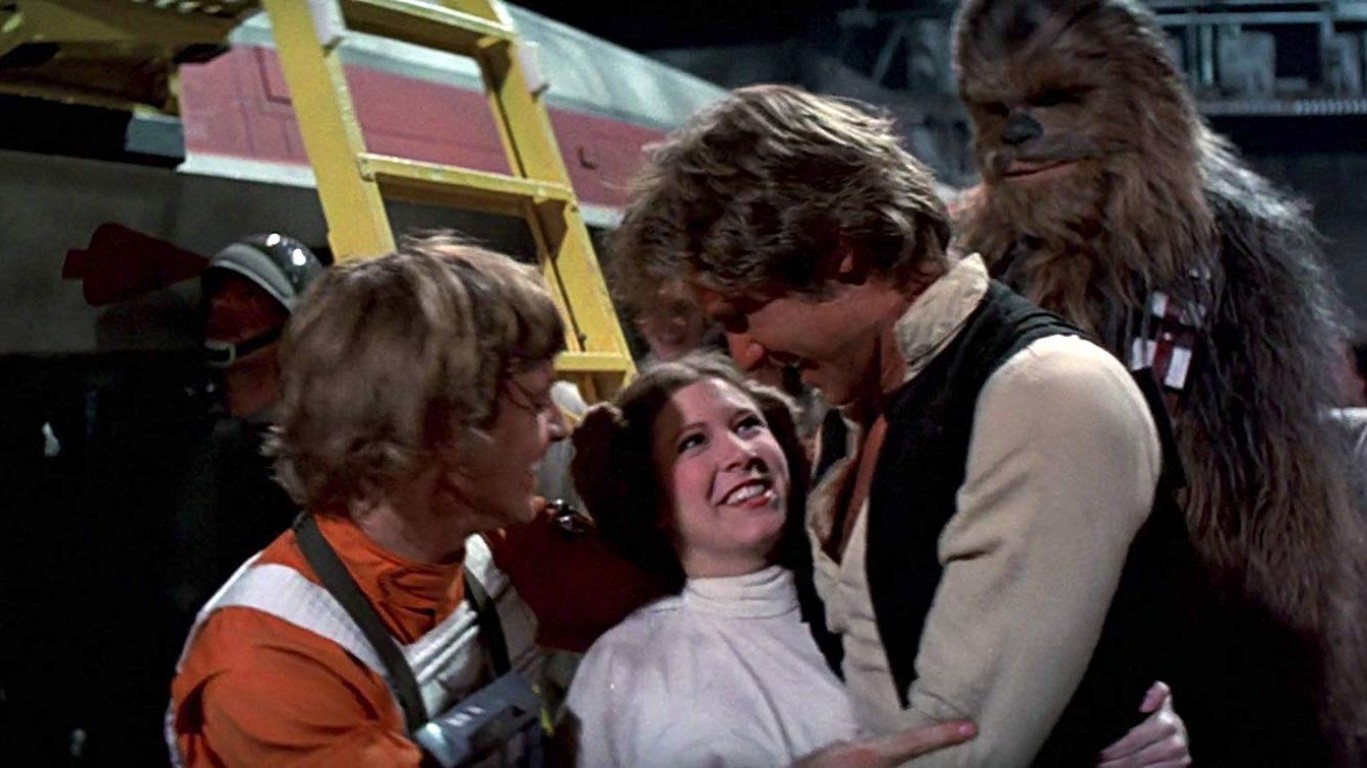
1977
> Biggest summer blockbuster: Star Wars
> Domestic gross (adjusted for inflation): $1.60 billion
> Domestic gross (unadjusted): $461.0 million
> Production budget (unadjusted): $11.0 million
Kids who had just been let out of school for the summer never forgot the opening scene of a spacecraft inhabiting the screen that announced one of cinema’s greatest franchises. In “Star Wars,” we meet the characters that will become movie legends — Princess Leia, R2-D2, Han Solo, Luke Skywalker, and Darth Vader.
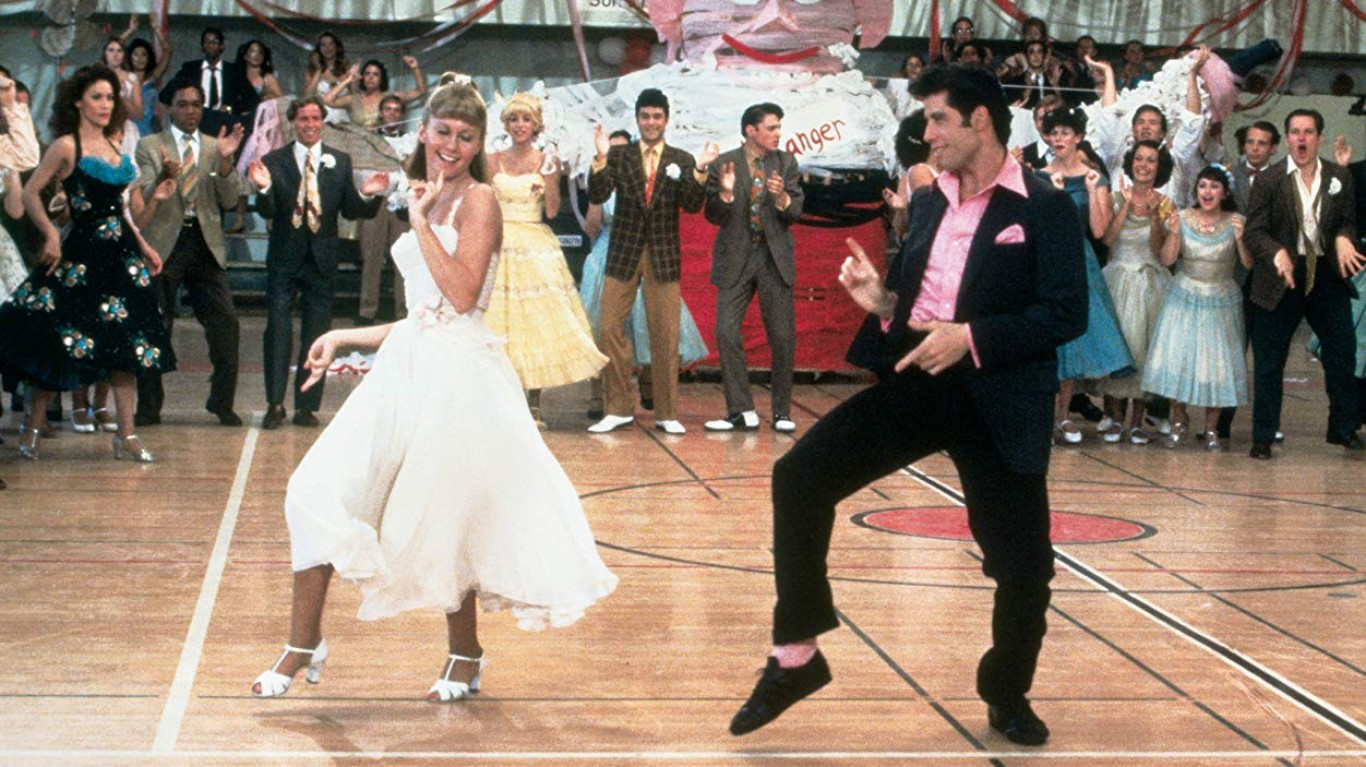
1978
> Biggest summer blockbuster: Grease
> Domestic gross (adjusted for inflation): $694.7 million
> Domestic gross (unadjusted): $190.0 million
> Production budget (unadjusted): $6.0 million
Some of the songs from the musical “Grease” — “Summer Nights,” “Hopelessly Devoted to You,” and “You’re the One That I Want” — are embedded in our memory. The plot, such as it is, involves good girl Sandy (Olivia Newton-John) meeting greaser Danny (John Travolta, just off his “Saturday Night Fever” star turn) over the summer. The two fall in love, but when they discover they go to the same high school, school cliques complicate their relationship.
[in-text-ad-2]
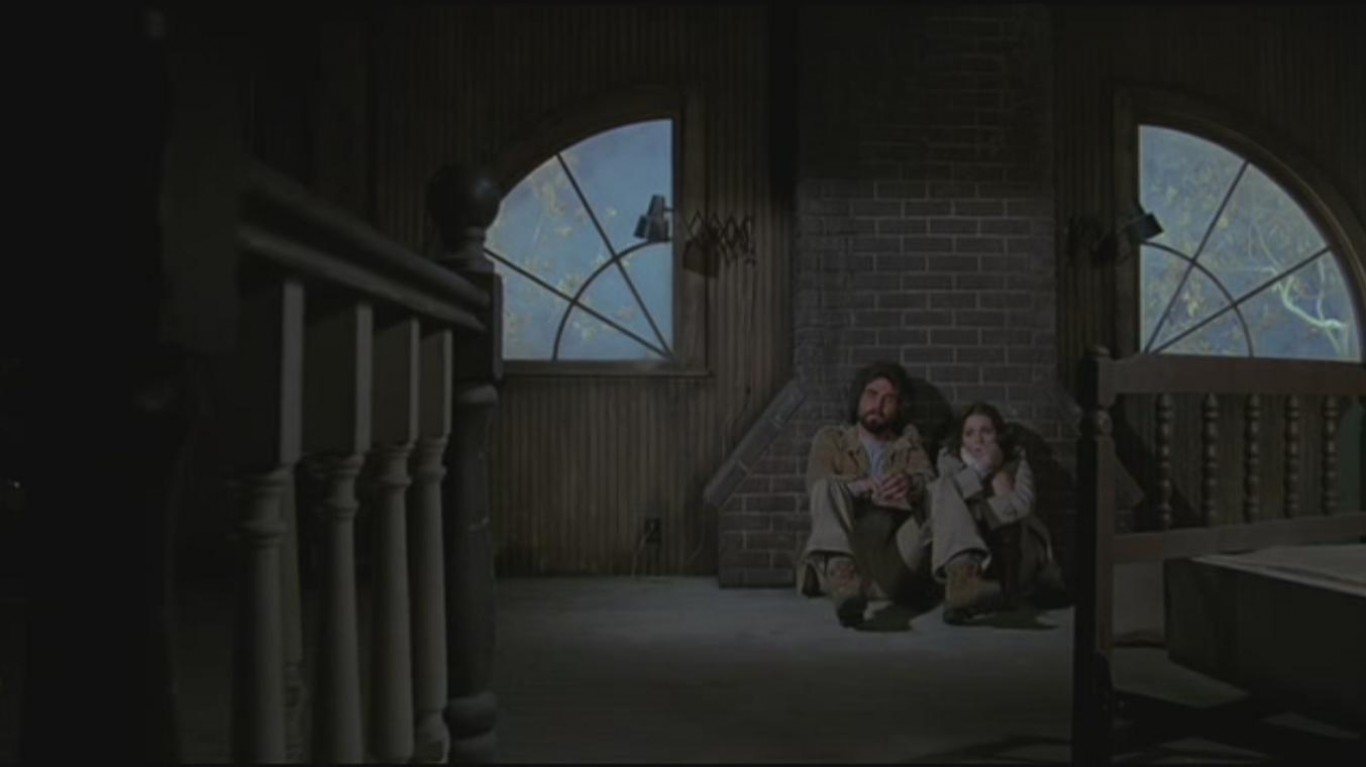
1979
> Biggest summer blockbuster: The Amityville Horror
> Domestic gross (adjusted for inflation): $310.3 million
> Domestic gross (unadjusted): $86.4 million
> Production budget (unadjusted): $4.7 million
“The Amityville Horror” is another horror classic from the 1970s. The film, starring James Brolin and Margot Kidder, is about a family on Long Island haunted by malevolent poltergeists bent on driving them out of their home. The film is based on the experiences of the Lutz family, who bought a house in Amityville, Long Island, in 1974, 13 months after Ron DeFeo Jr. murdered six family members there.
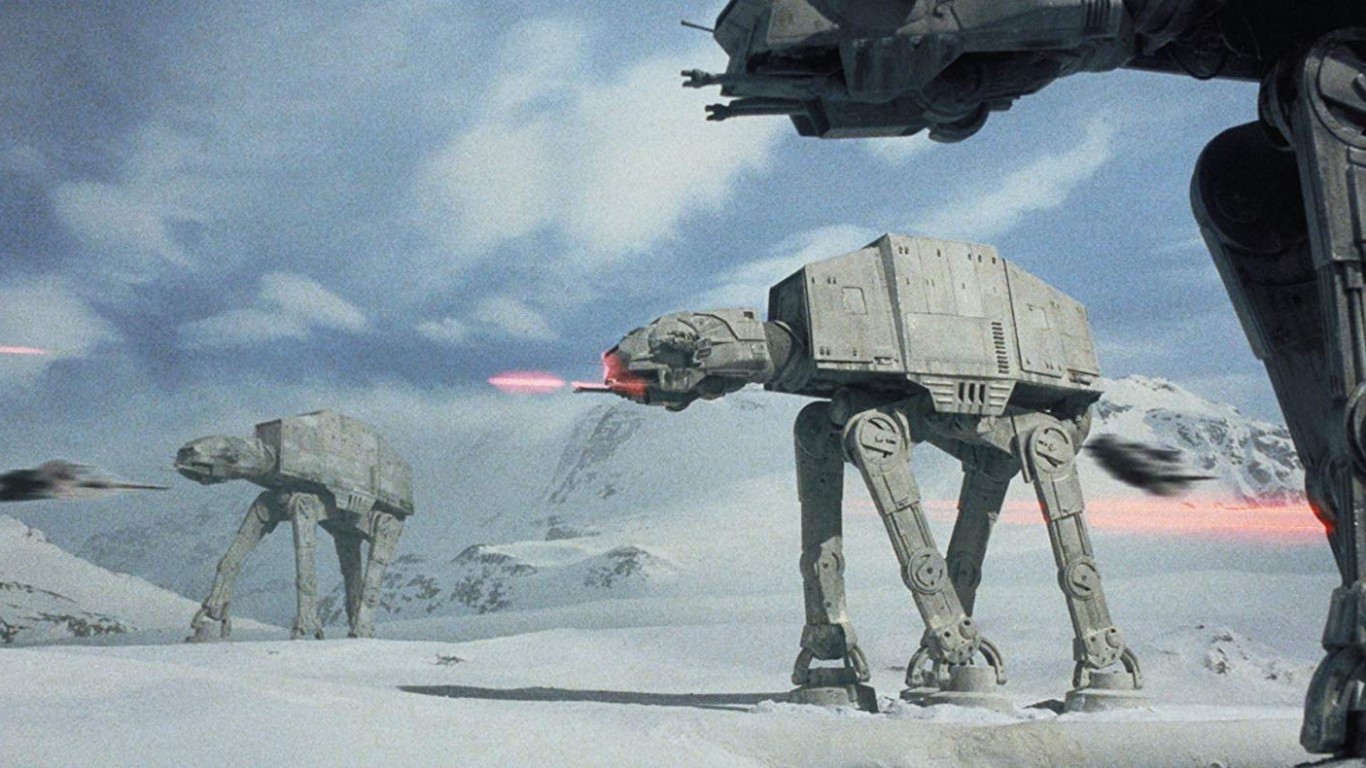
1980
> Biggest summer blockbuster: The Empire Strikes Back
> Domestic gross (adjusted for inflation): $884.6 million
> Domestic gross (unadjusted): $290.5 million
> Production budget (unadjusted): $18.0 million
“The Empire Strikes Back” is the sequel to the first Star Wars movie. Harrison Ford, Carrie Fisher, and Mark Hamill return as, respectively, Han Solo, Princess Leia, and Luke Skywalker. In a limited opening in 126 theaters on May 21, the movie rang up $4.9 million in unadjusted box office gross and was the No. 1 movie that weekend. It had a wider release one month later.
[in-text-ad]
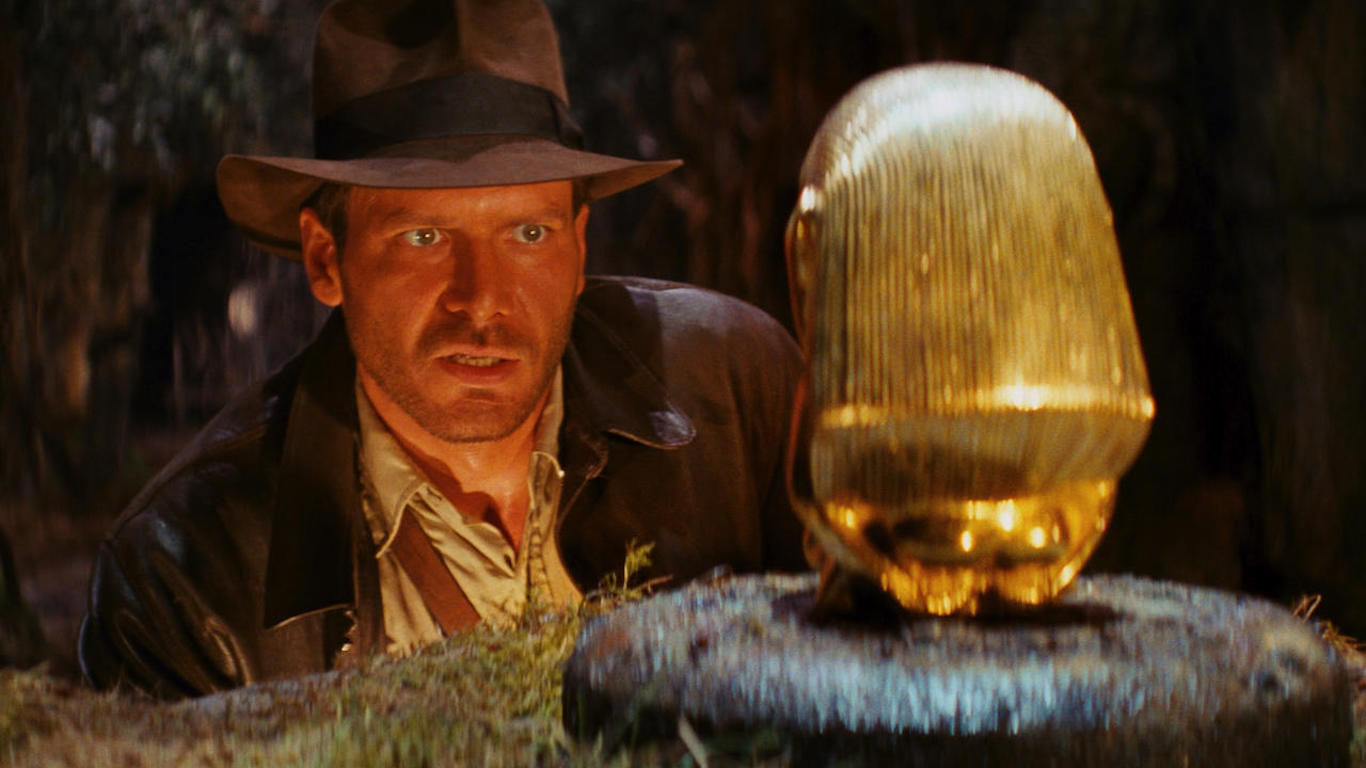
1981
> Biggest summer blockbuster: Raiders of the Lost Ark
> Domestic gross (adjusted for inflation): $797.8 million
> Domestic gross (unadjusted): $248.2 million
> Production budget (unadjusted): $18.0 million
For pure escapist summer fare, few movies can top George Lucas and Steven Spielberg’s homage to Hollywood adventure films, “Raiders of the Lost Ark.” Harrison Ford, already scaling the heights of movie superstardom as Han Solo in the Star Wars films, plays the swashbuckling, snake-fearing archaeologist Indiana Jones, who must keep the Ark of the Covenant out of the hands of Nazis who plan to use it in their quest for world domination.
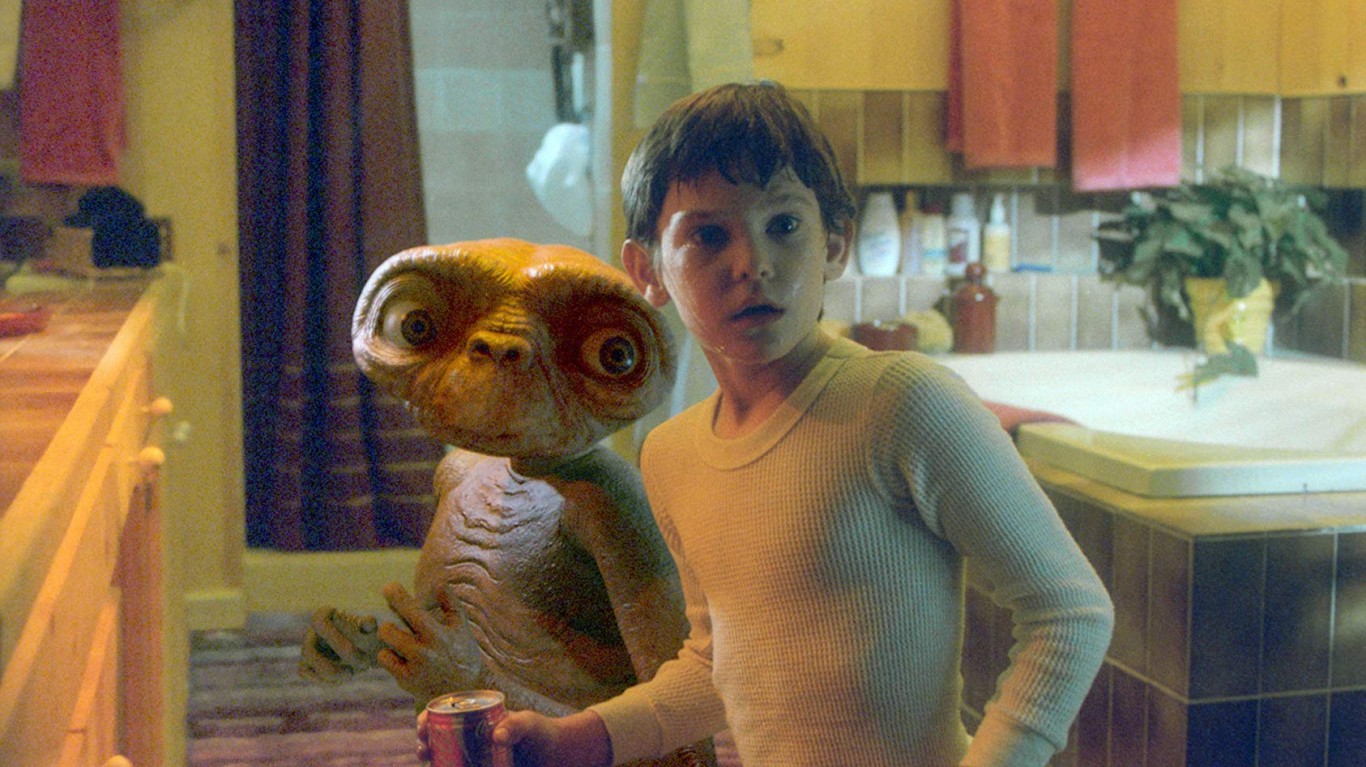
1982
> Biggest summer blockbuster: E.T.: The Extra-Terrestrial
> Domestic gross (adjusted for inflation): $1.28 billion
> Domestic gross (unadjusted): $435.1 million
> Production budget (unadjusted): $10.5 million
“E.T.: The Extra-Terrestrial” continued director Steven Spielberg’s infatuation with benevolent beings from another world that began with “Close Encounters of the Third Kind” five years earlier. The movie also reinforced his belief during the post-Watergate era that government is not benevolent and is not to be trusted. The suburban kids who find E.T. know this, and they smuggle the extraterrestrial out of the neighborhood that is surrounded by government agents looking to capture the alien.
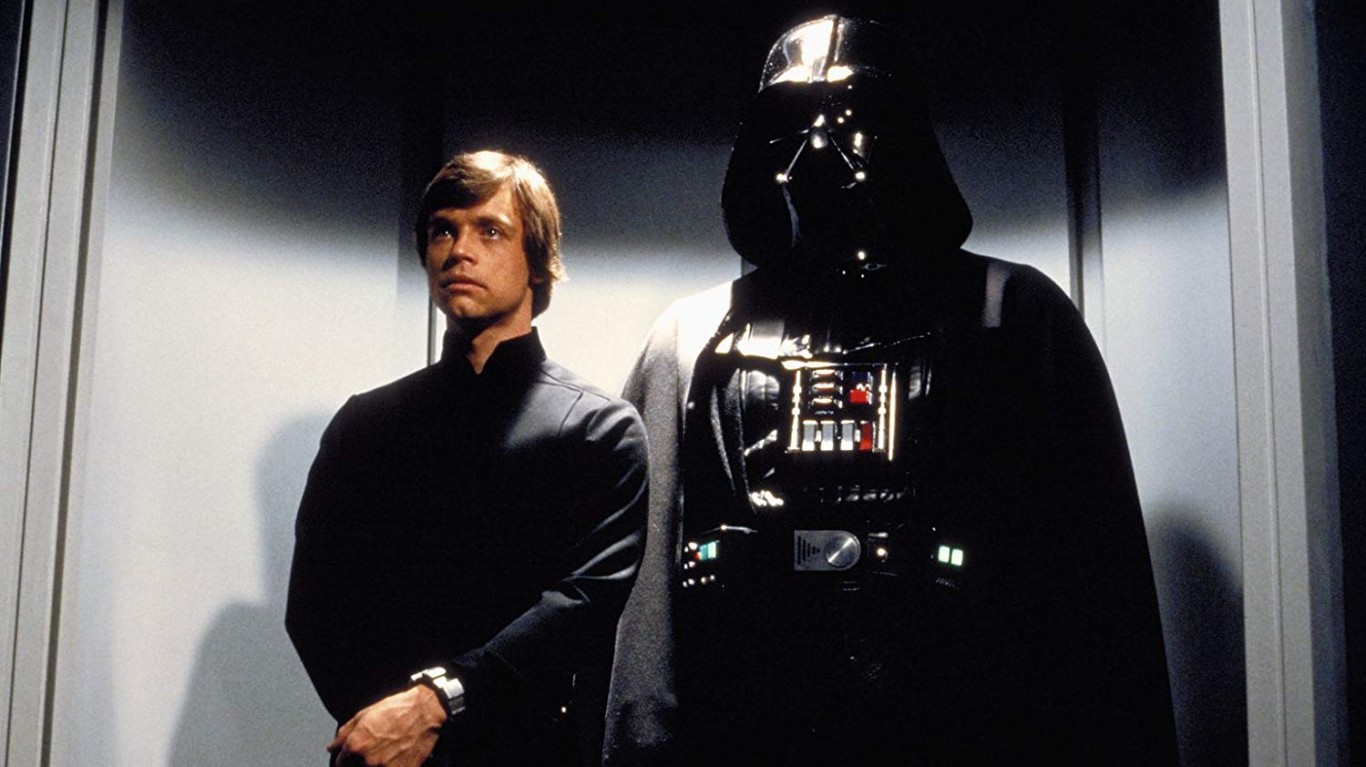
1983
> Biggest summer blockbuster: Return of the Jedi
> Domestic gross (adjusted for inflation): $847.5 million
> Domestic gross (unadjusted): $309.3 million
> Production budget (unadjusted): $32.5 million
“Return of the Jedi” was the third in the Star Wars series, opening on May 23, three years after the first sequel. In this film, Luke Skywalker tries to bring back Darth Vader from the dark side and defeat the evil emperor. The Star Wars franchise is the second highest grossing series in movie history thanks in part to this box office champion.
[in-text-ad-2]
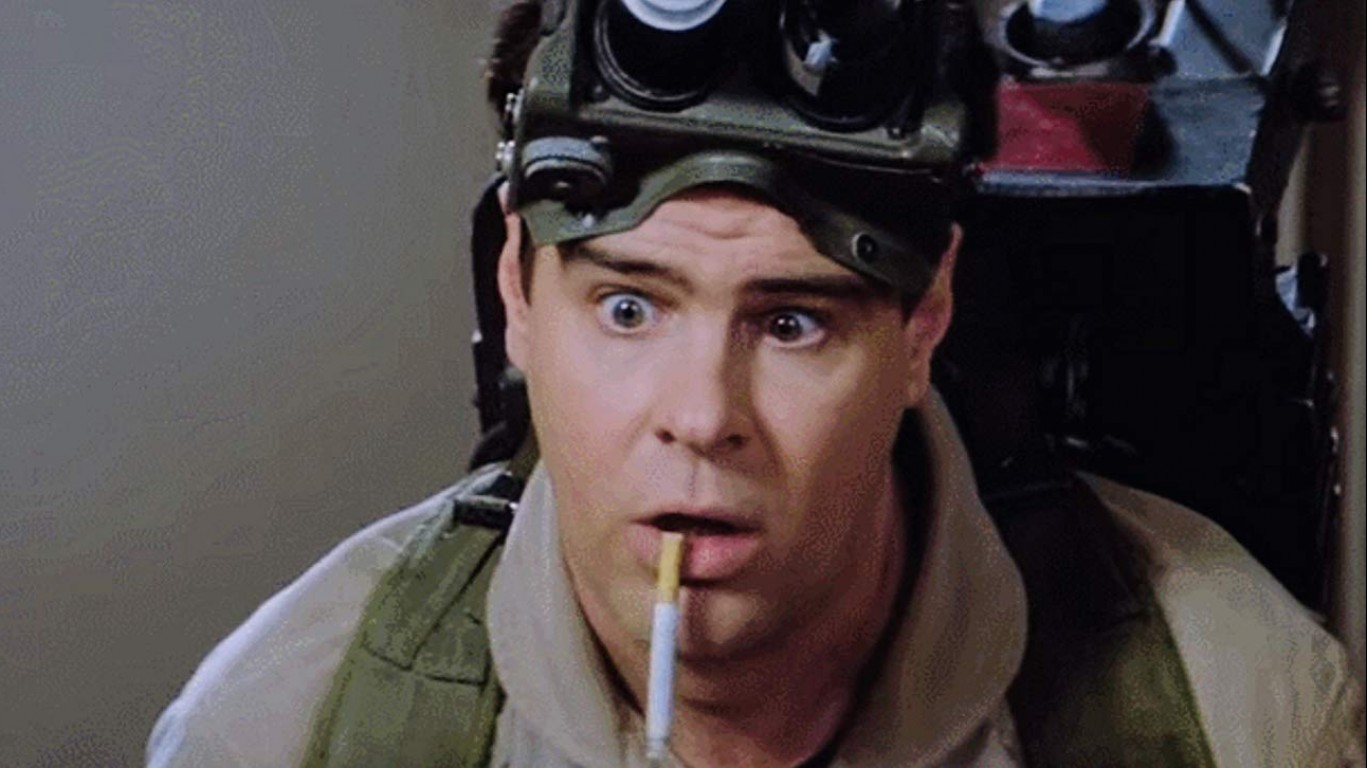
1984
> Biggest summer blockbuster: Ghostbusters
> Domestic gross (adjusted for inflation): $641.3 million
> Domestic gross (unadjusted): $242.2 million
> Production budget (unadjusted): $30.0 million
Who knew that oozing rivers of ectoplasm engulfing New York City could be big business? Three former parapsychology professors did, creating a business to expel hell-raising phantoms from the Big Apple. “Saturday Night Live” alums Bill Murray and Dan Akroyd star in this romp, and Sigourney Weaver, who had already faced down extraterrestrial terror in the movie “Alien,” plays up demonic possession for laughs in “Ghostbusters.”
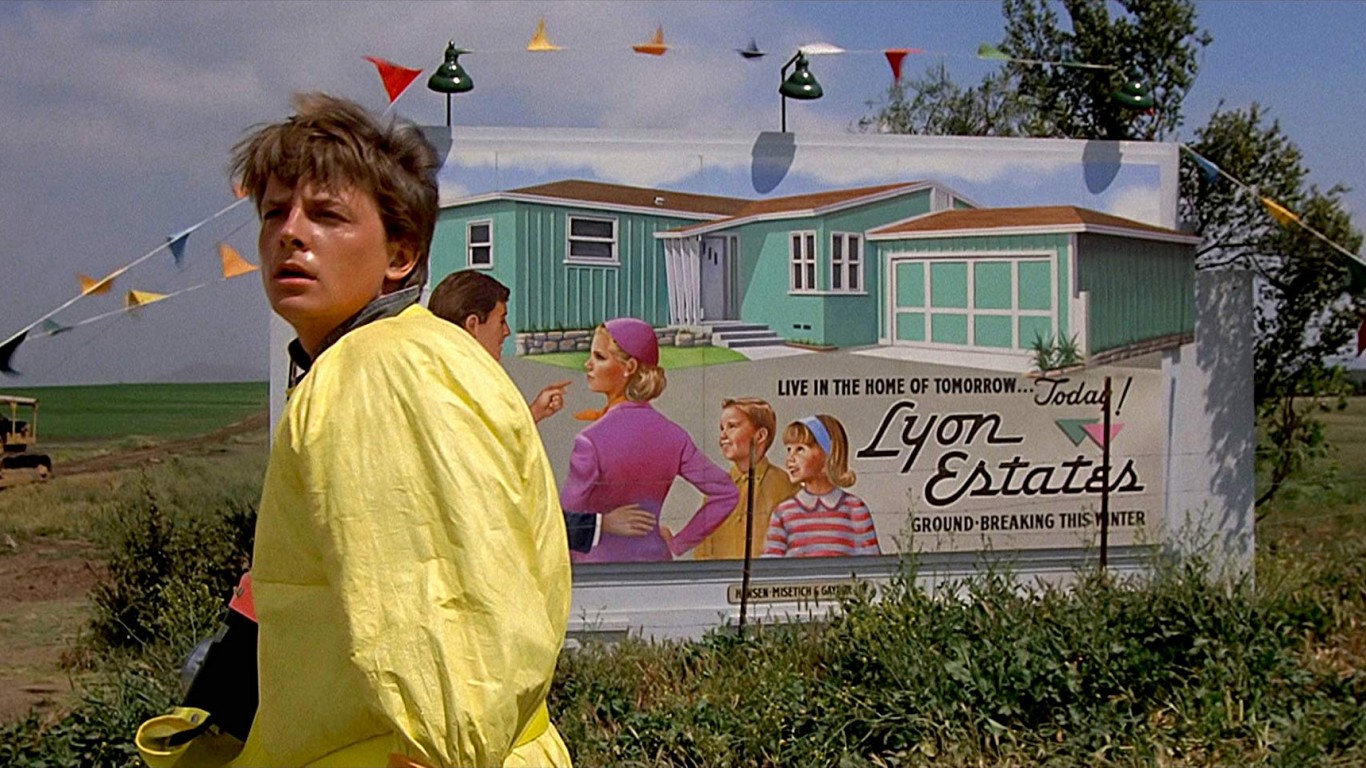
1985
> Biggest summer blockbuster: Back to the Future
> Domestic gross (adjusted for inflation): $532.0 million
> Domestic gross (unadjusted): $210.6 million
> Production budget (unadjusted): $19.0 million
Time travel, cool cars, romance, Libyan terrorists, the birth of rock and roll — there’s plenty to like about director Robert Zemeckis’ nostalgic look at the 1950s. The movie spawned two sequels, but none surpassed the success and unbridled joy of the first film, which was the highest grossing movie in 1985 and was inducted into the National Film Registry.
[in-text-ad]
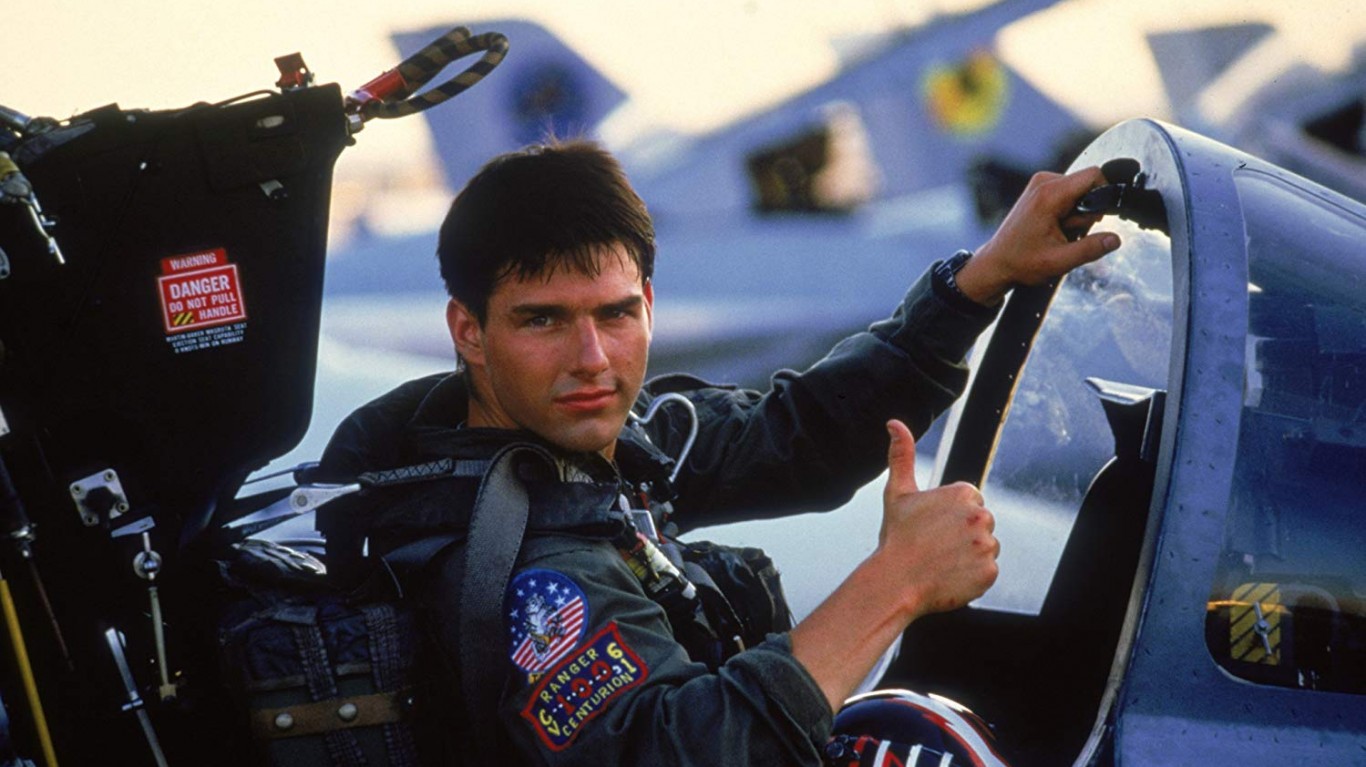
1986
> Biggest summer blockbuster: Top Gun
> Domestic gross (adjusted for inflation): $432.8 million
> Domestic gross (unadjusted): $179.8 million
> Production budget (unadjusted): $15.0 million
“Top Gun” is about cocky Navy fighter pilots trying to outdo each other. The movie stars eye candy Tom Cruise and Val Kilmer, with Kelly McGillis as the love interest. The film captured the Reagan-era zeitgeist of a confident, maybe overconfident, America, looking to reassert itself on the world stage.
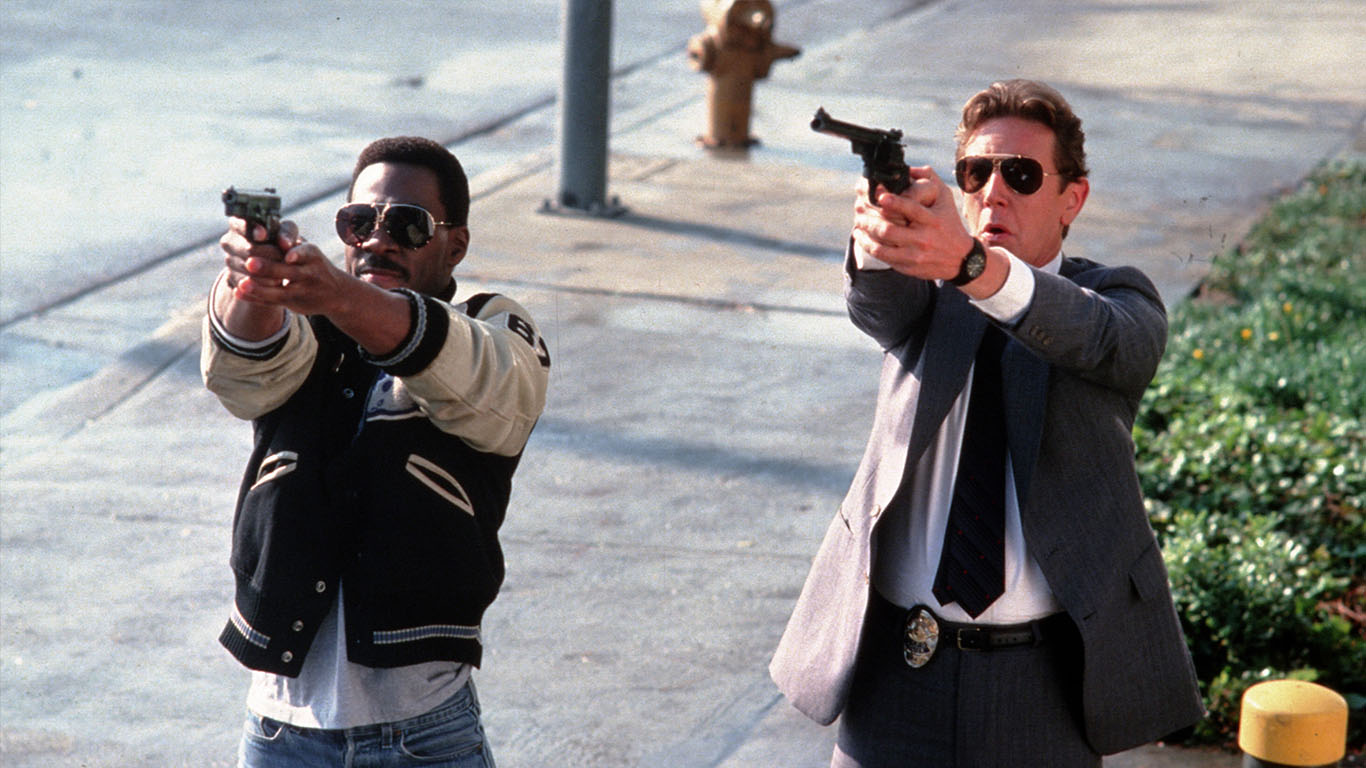
1987
> Biggest summer blockbuster: Beverly Hills Cop II
> Domestic gross (adjusted for inflation): $354.1 million
> Domestic gross (unadjusted): $153.7 million
> Production budget (unadjusted): $28.0 million
The action-comedy “Beverly Hills Cop II” returned Axel Foley (Eddie Murphy) to Los Angeles to help local police probe the shooting of a police chief and crimes associated with the attempted murder of the top cop. Murphy was one of the biggest stars of the 1980s, and his star power lifted the film to the top on its opening weekend in late May — it was the third highest grossing film in 1987.
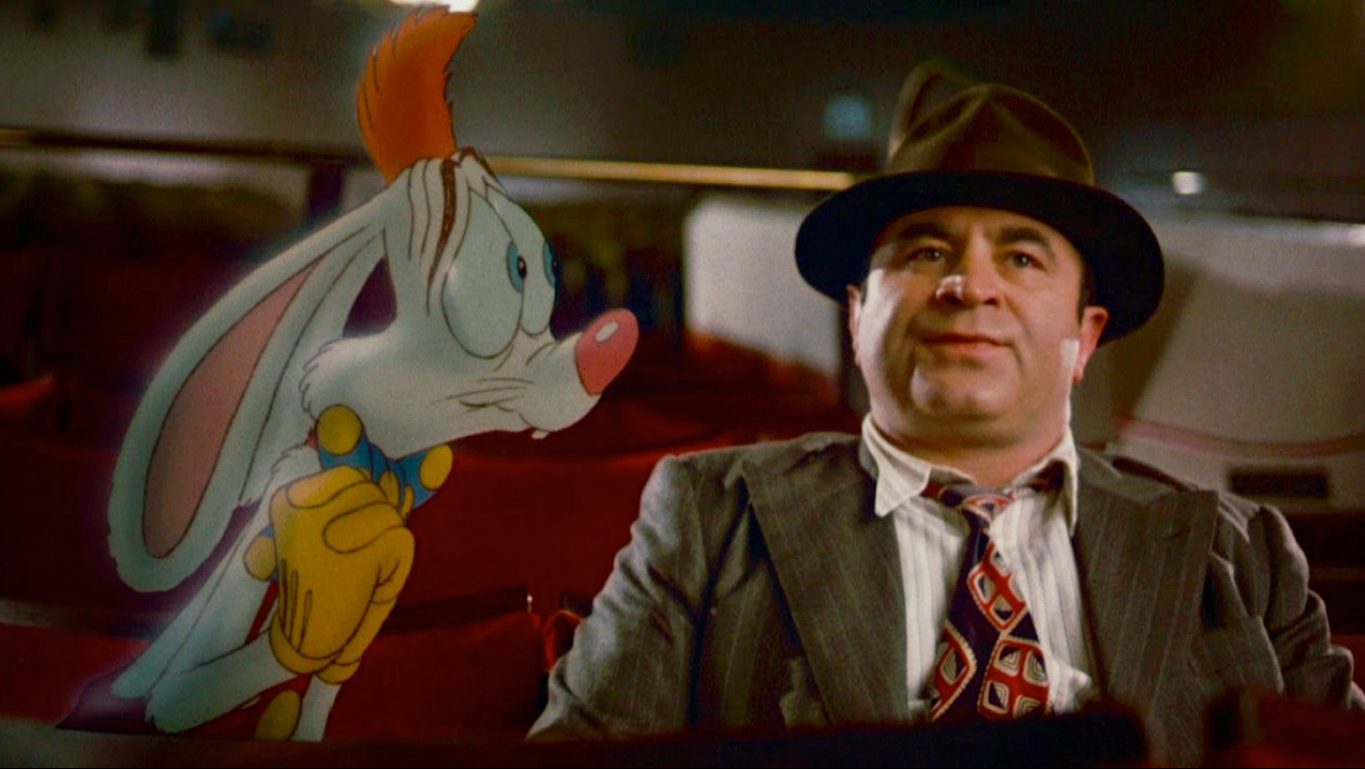
1988
> Biggest summer blockbuster: Who Framed Roger Rabbit
> Domestic gross (adjusted for inflation): $343.0 million
> Domestic gross (unadjusted): $156.5 million
> Production budget (unadjusted): $70.0 million
Pioneering interaction between real and animated characters in the film “Who Framed Roger Rabbit” engaged audiences in 1988. Roger is an animated rabbit who is accused of murder and needs the help of a detective who detests cartoons. The movie topped all others when it opened on June 24 and was the second highest grossing film in 1988 behind “Rain Man.”
[in-text-ad-2]
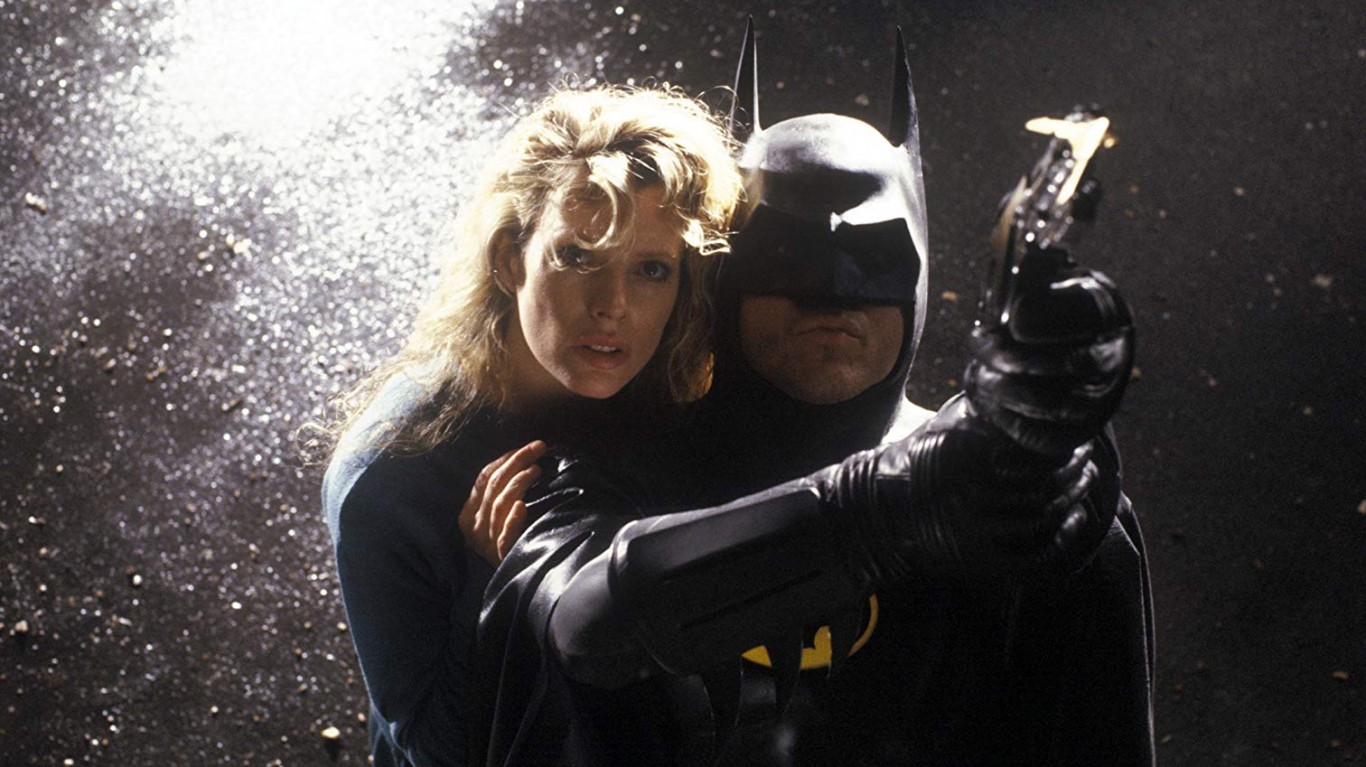
1989
> Biggest summer blockbuster: Batman
> Domestic gross (adjusted for inflation): $567.4 million
> Domestic gross (unadjusted): $251.3 million
> Production budget (unadjusted): $35.0 million
Michael Keaton is Batman, who does battle with the deranged Joker, played by Jack Nicholson, in the Tim Burton-helmed movie that brought the caped crusader to the big screen. The film opened on June 23 and was the top box office attraction, with $40.5 million in unadjusted domestic gross during its opening weekend.
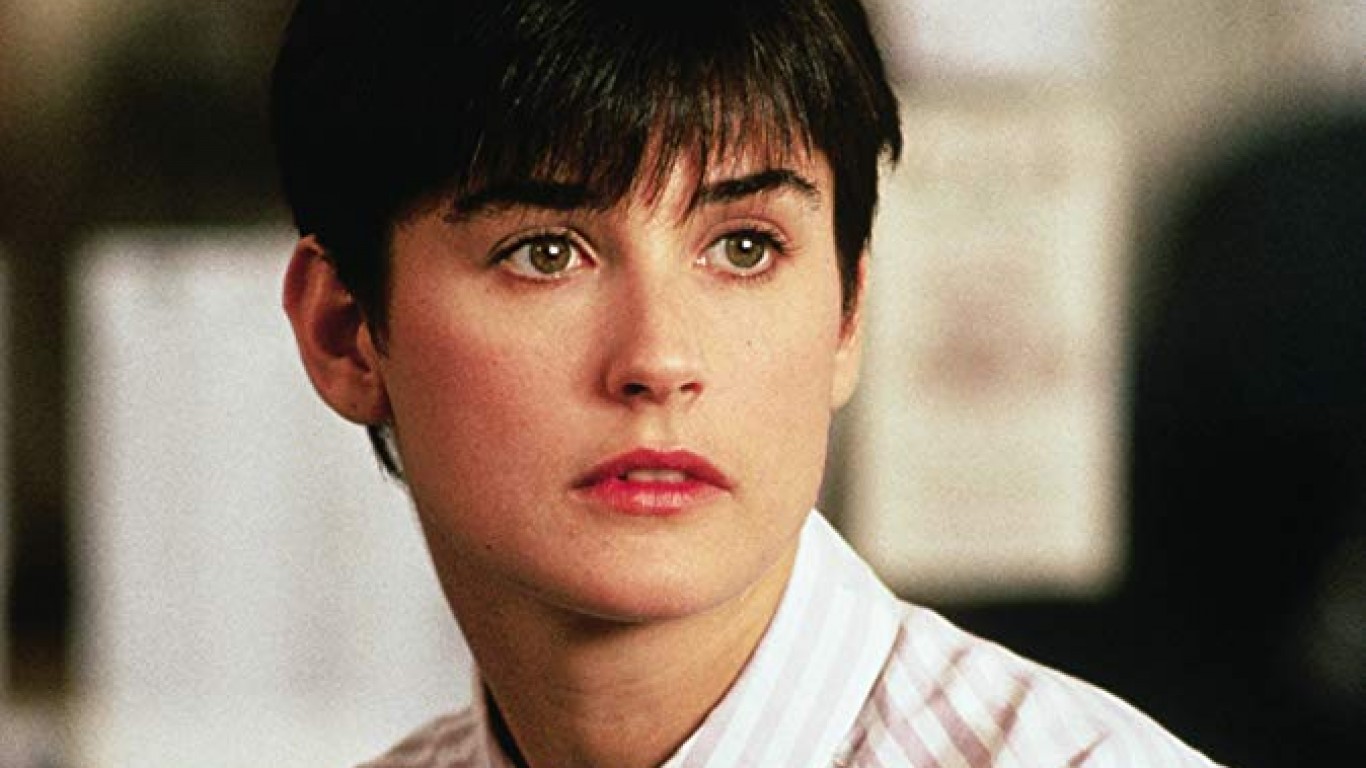
1990
> Biggest summer blockbuster: Ghost
> Domestic gross (adjusted for inflation): $463.7 million
> Domestic gross (unadjusted): $217.6 million
> Production budget (unadjusted): $22.0 million
“Ghost” is a romantic drama about a young man (Patrick Swayze) who is murdered and his spirit remains to warn his lover (Demi Moore) that the killers are out to get her. Whoopi Goldberg won an Oscar for Best Supporting Actress for her role as the psychic who warns Moore. The movie opened in mid-July and had the second highest domestic gross of any film in 1990 after the Christmas movie “Home Alone.”
[in-text-ad]
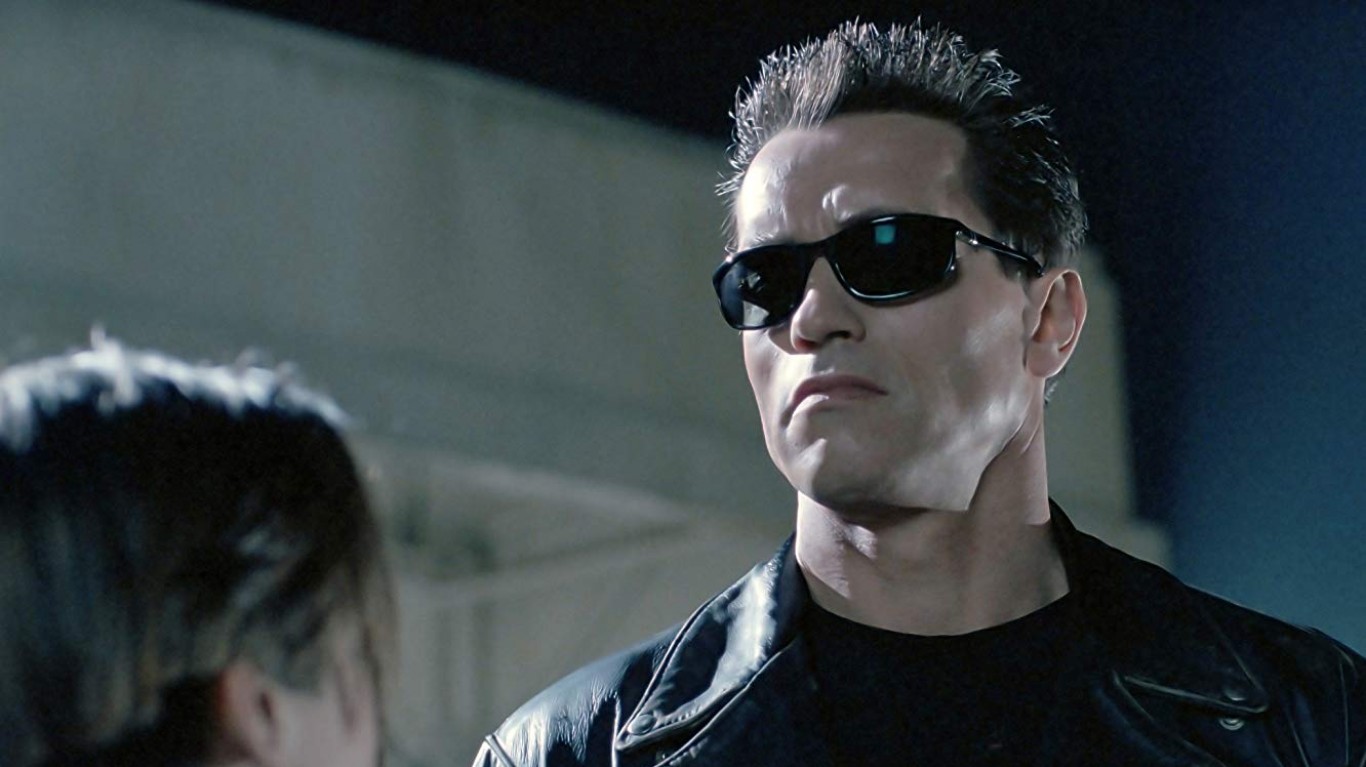
1991
> Biggest summer blockbuster: Terminator 2: Judgment Day
> Domestic gross (adjusted for inflation): $439.4 million
> Domestic gross (unadjusted): $205.9 million
> Production budget (unadjusted): $102.0 million
Former body-building champion Arnold Schwarzenegger carved out a lucrative niche as an action star in the Terminator series. In “Terminator 2: Judgment Day,” Schwarzenegger plays a cyborg sent from the future to protect the future human leader who will lead the resistance against machines. The movie is remembered for Schwarzenegger’s quote: “Hasta la vista, baby.” “Terminator 2: Judgment Day” terminated the competition on its first weekend in July 1991, raking in more than $31.7 million.
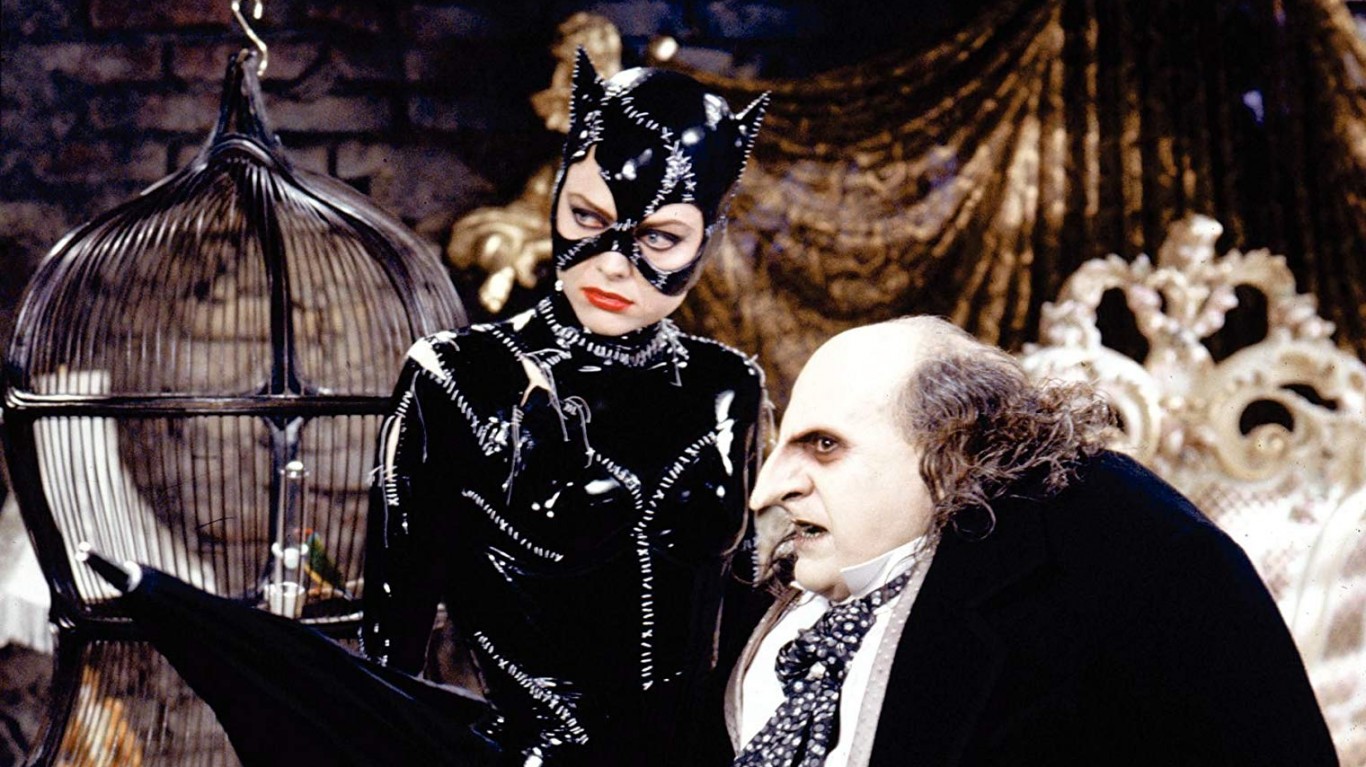
1992
> Biggest summer blockbuster: Batman Returns
> Domestic gross (adjusted for inflation): $353.6 million
> Domestic gross (unadjusted): $162.9 million
> Production budget (unadjusted): $80.0 million
“Batman Returns” finds the caped crusader (Michael Keaton) confronting the detestable Penguin (Danny DeVito) and the slinky Catwoman (Michelle Pfeiffer). Released on June 19, “Batman Returns” was the top-grossing film on its opening weekend.
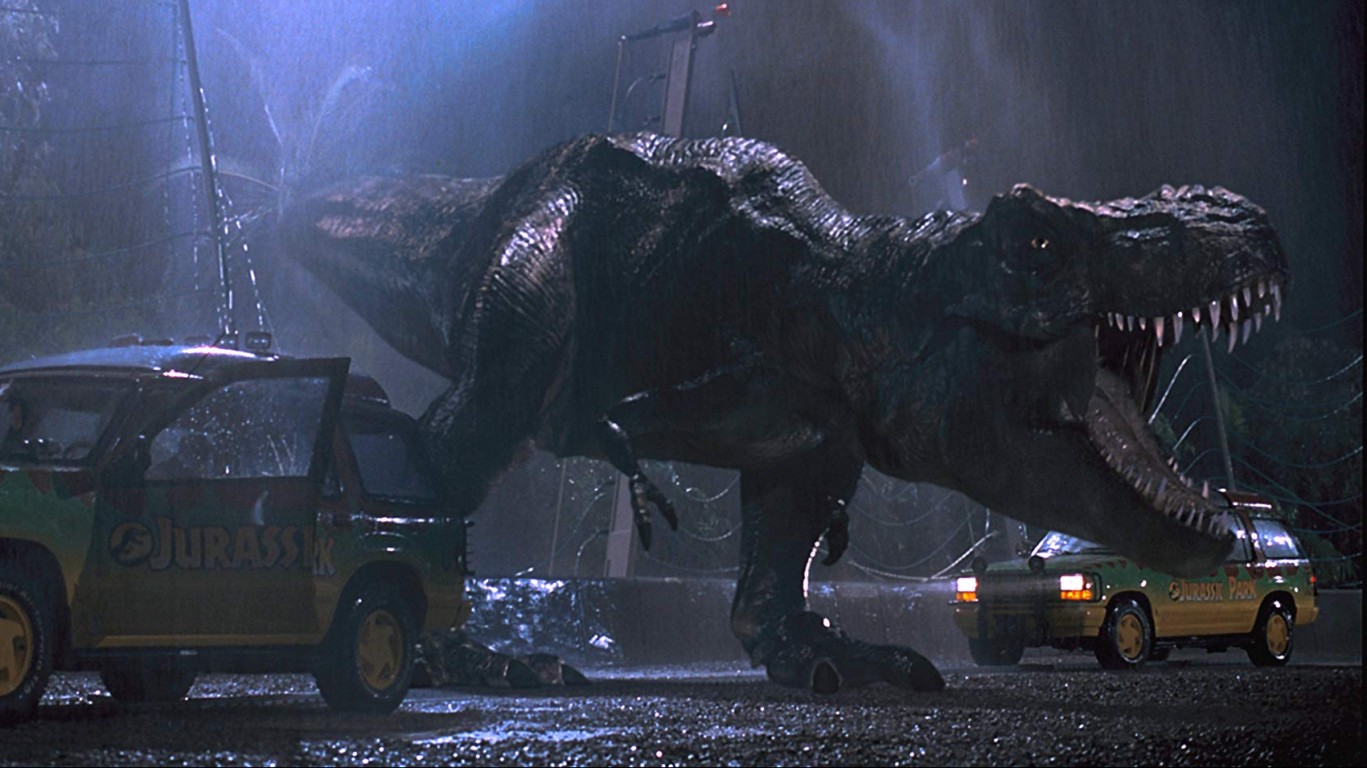
1993
> Biggest summer blockbuster: Jurassic Park
> Domestic gross (adjusted for inflation): $825.9 million
> Domestic gross (unadjusted): $402.8 million
> Production budget (unadjusted): $63.0 million
The movie that launched the franchise about cloned dinosaurs running amuck in an island paradise was a blockbuster right out of the gate. Steven Spielberg’s monster hit grossed more than $47 million in its first weekend in early June. “Jurassic Park” would go on to be the highest grossing movie of 1993.
[in-text-ad-2]
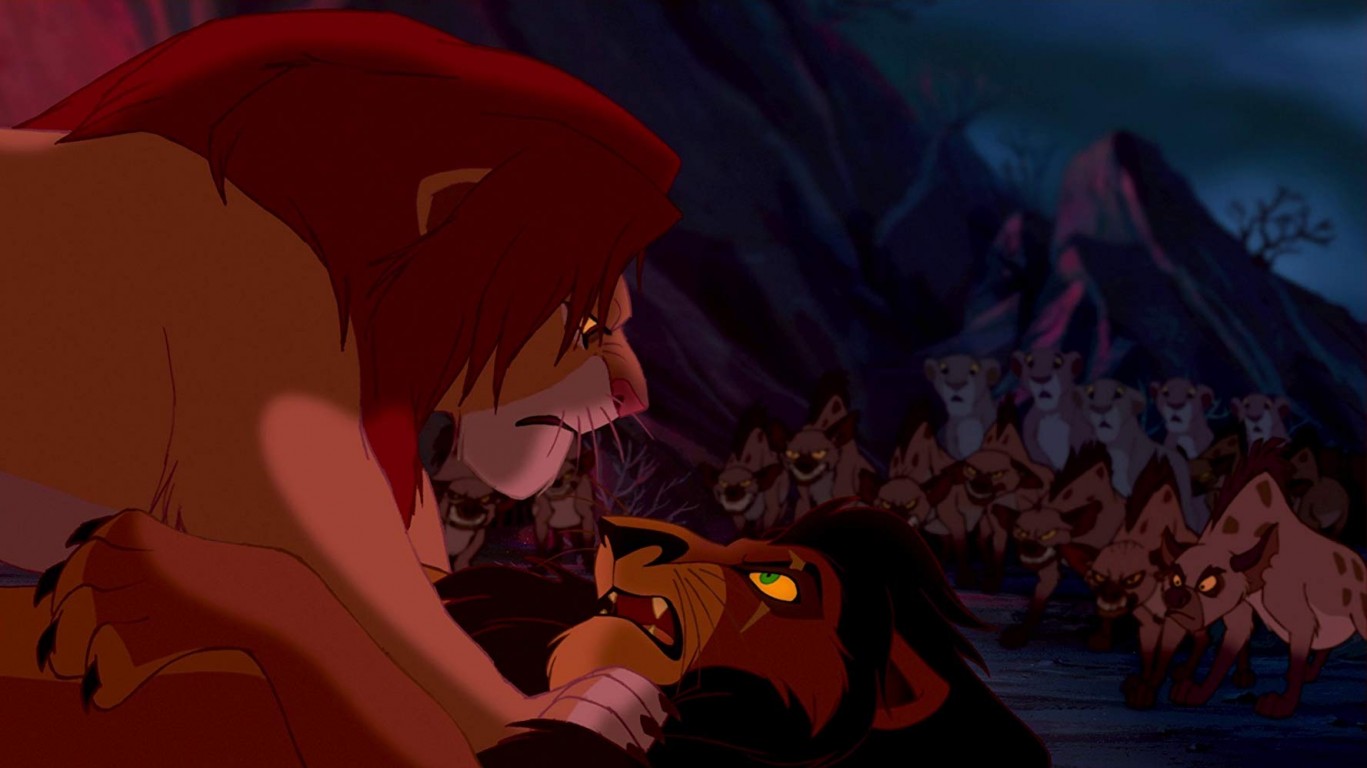
1994
> Biggest summer blockbuster: The Lion King
> Domestic gross (adjusted for inflation): $803.2 million
> Domestic gross (unadjusted): $422.8 million
> Production budget (unadjusted): $45.0 million
The beloved animated tale about a young lion assuming his rightful place in the animal kingdom, is one of 28 Disney movies to have tallied more than $300 million at the box office. “The Lion King” opened in limited release on June 15 at two theaters, then had a wider release on June 24 at 2,552 theaters, racking up more than $40 million in unadjusted gross at the box office that opening weekend.
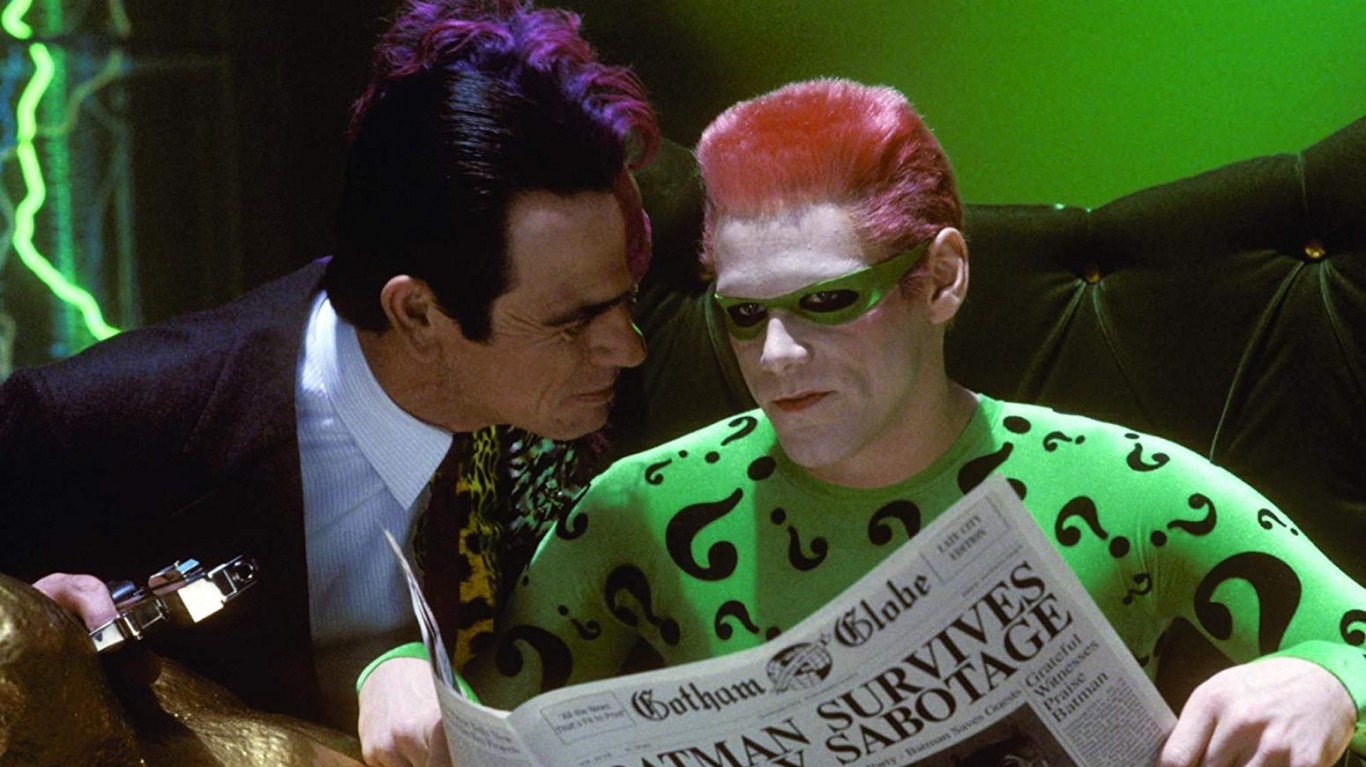
1995
> Biggest summer blockbuster: Batman Forever
> Domestic gross (adjusted for inflation): $381.2 million
> Domestic gross (unadjusted): $184.1 million
> Production budget (unadjusted): $100.0 million
Val Kilmer plays the caped crusader in “Batman Forever,” as the series is taken in a more campy direction by director Joel Schumacher. Batman matches wits with the horribly disfigured former district attorney general Harvey Dent, who is known as Two-Face, and the Riddler, a former employee of Bruce Wayne seeking revenge. The film opened on June 16 and wiped out the competition with a box office gross of more than $52 million that weekend.
[in-text-ad]
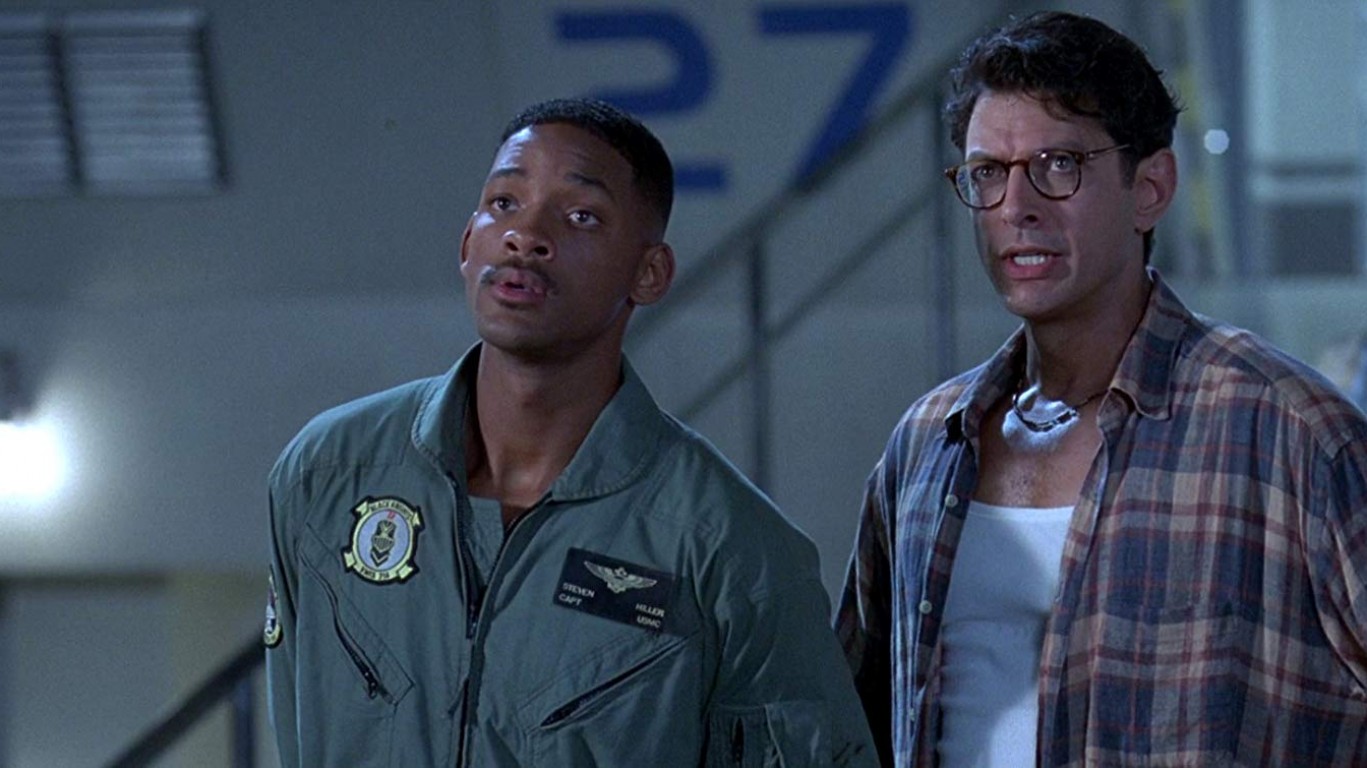
1996
> Biggest summer blockbuster: Independence Day
> Domestic gross (adjusted for inflation): $624.1 million
> Domestic gross (unadjusted): $306.2 million
> Production budget (unadjusted): $75.0 million
Cigar-chomping fighter pilot Will Smith, computer genius Jeff Goldblum, and crop-duster plane jockey Randy Quaid help save the Earth from aliens bent on conquest in this blockbuster that was released on July 3, the day before Independence Day.
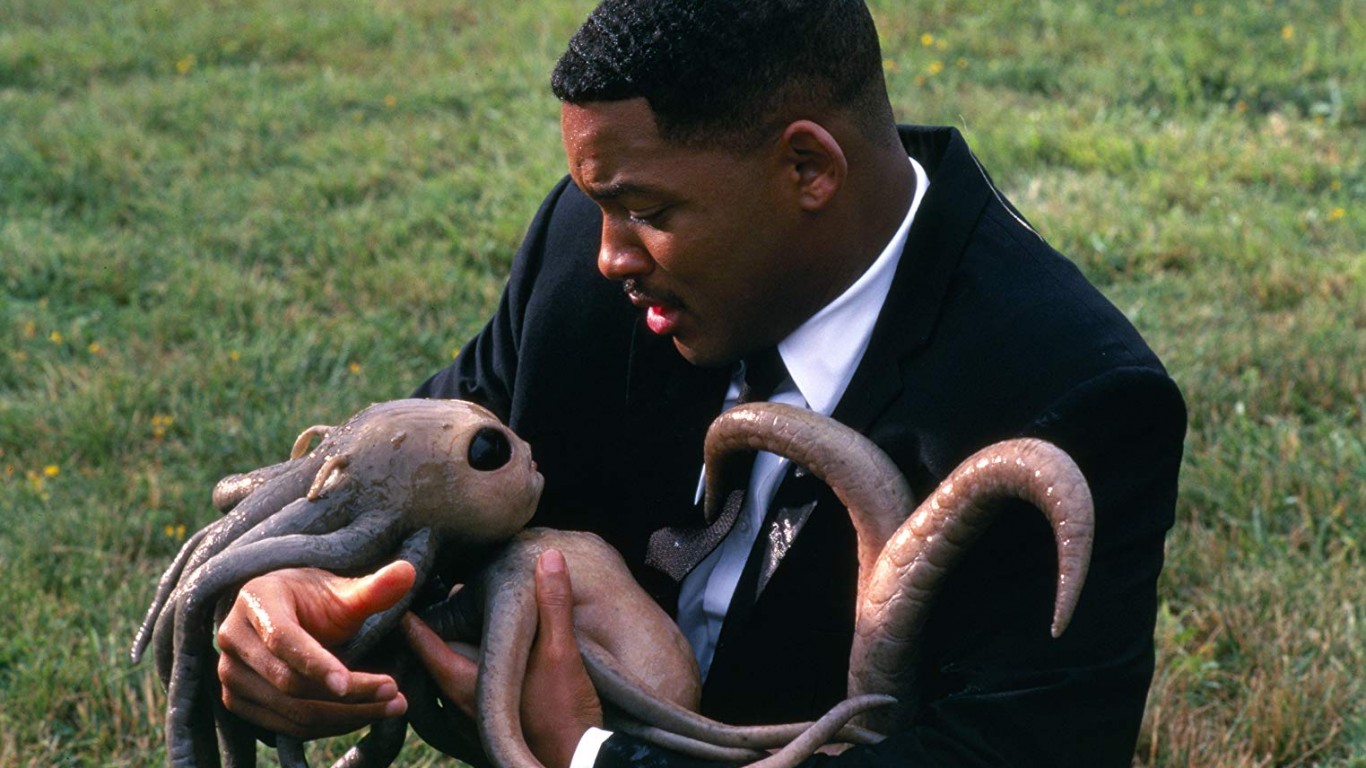
1997
> Biggest summer blockbuster: Men in Black
> Domestic gross (adjusted for inflation): $492.1 million
> Domestic gross (unadjusted): $250.7 million
> Production budget (unadjusted): $90.0 million
“Men in Black” was a buddy movie with Will Smith and Tommy Lee Jones who fight extraterrestrials causing mayhem on Earth. The movie would spawn three other Men in Black films, all released for the summer. The first had the least successful opening of the first three but would eventually be the most lucrative, topping more than $250 million in unadjusted box office gross.
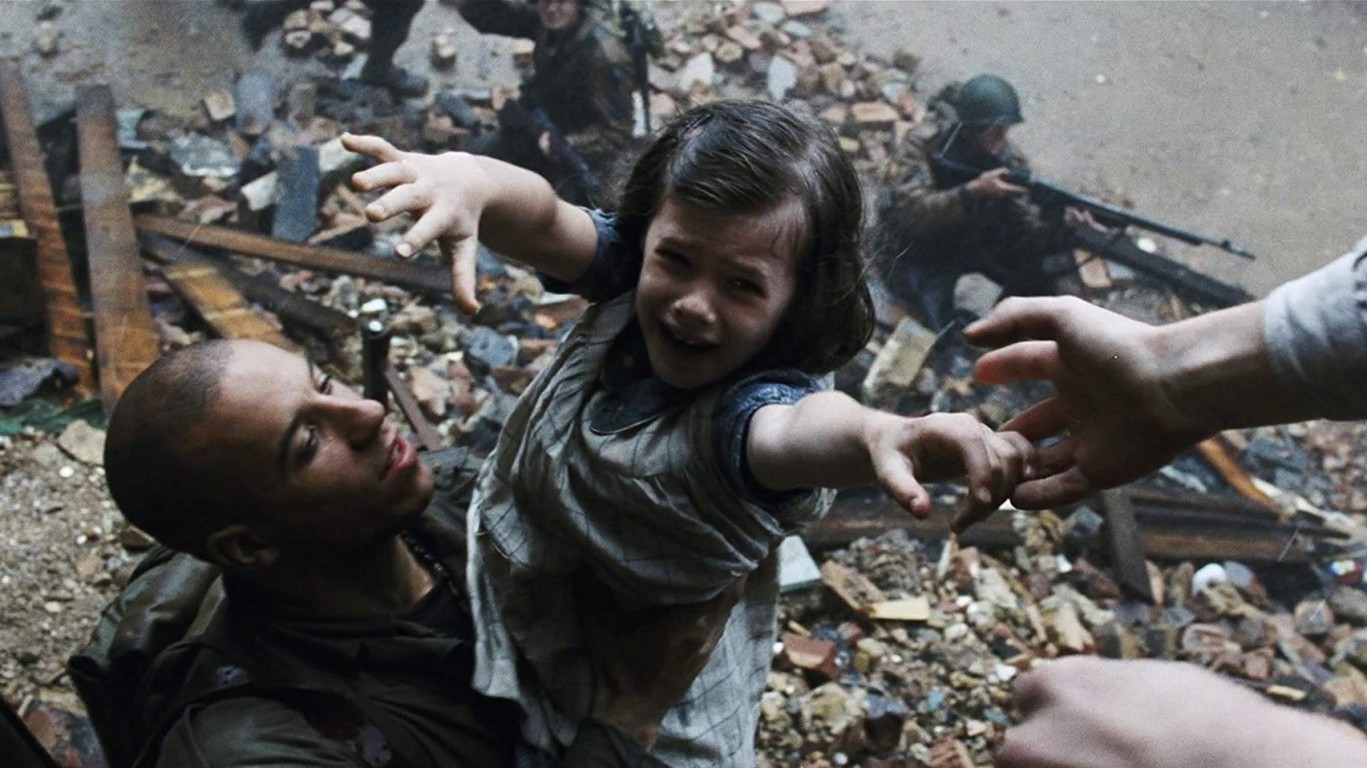
1998
> Biggest summer blockbuster: Saving Private Ryan
> Domestic gross (adjusted for inflation): $412.7 million
> Domestic gross (unadjusted): $217.0 million
> Production budget (unadjusted): $70.0 million
“Saving Private Ryan,” Steven Spielberg’s paean to the greatest generation’s sacrifices during World War II, doesn’t fit the image of a summer escapist movie. But the critically acclaimed film was a hit, grossing more than $30 million in its first weekend in late July, on its way to over $217 million in unadjusted domestic total gross.
[in-text-ad-2]
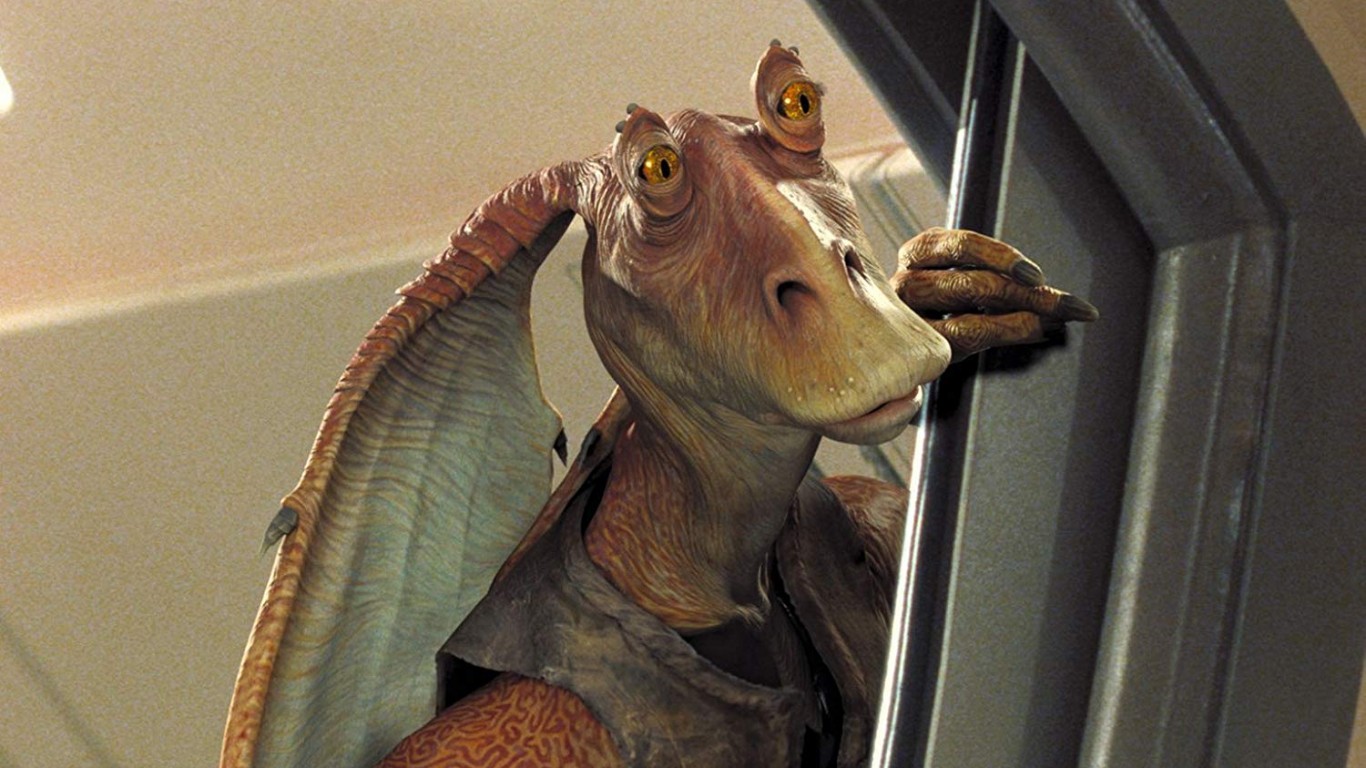
1999
> Biggest summer blockbuster: Star Wars: Episode I – The Phantom Menace
> Domestic gross (adjusted for inflation): $813.7 million
> Domestic gross (unadjusted): $474.5 million
> Production budget (unadjusted): $115.0 million
“Star Wars: Episode I – The Phantom Menace” is the first of the Star Wars prequel trilogy. The film opened before Memorial Day and grossed more than $64 million at the box office on its opening weekend, topping all films that weekend. The movie has the third highest box office total of any Star Wars film when adjusting for inflation.
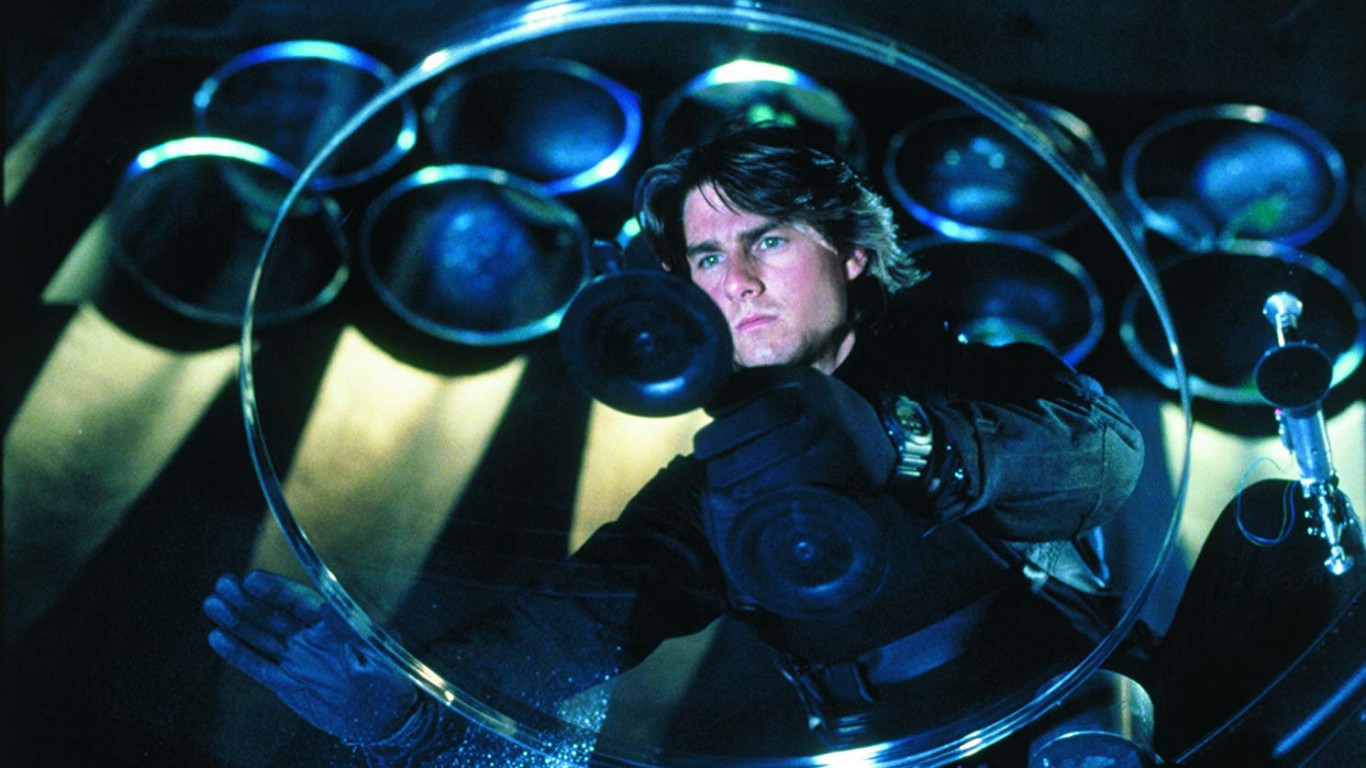
2000
> Biggest summer blockbuster: Mission: Impossible II
> Domestic gross (adjusted for inflation): $360.1 million
> Domestic gross (unadjusted): $215.4 million
> Production budget (unadjusted): $125.0 million
The Mission: Impossible franchise, with six movies, has been good for Tom Cruise, who has starred in and co-produced the series. In “Mission: Impossible II,” directed by action maestro John Woo, Cruise’s character Ethan Hunt is sent to Australia to find and destroy a genetically modified virus.
[in-text-ad]
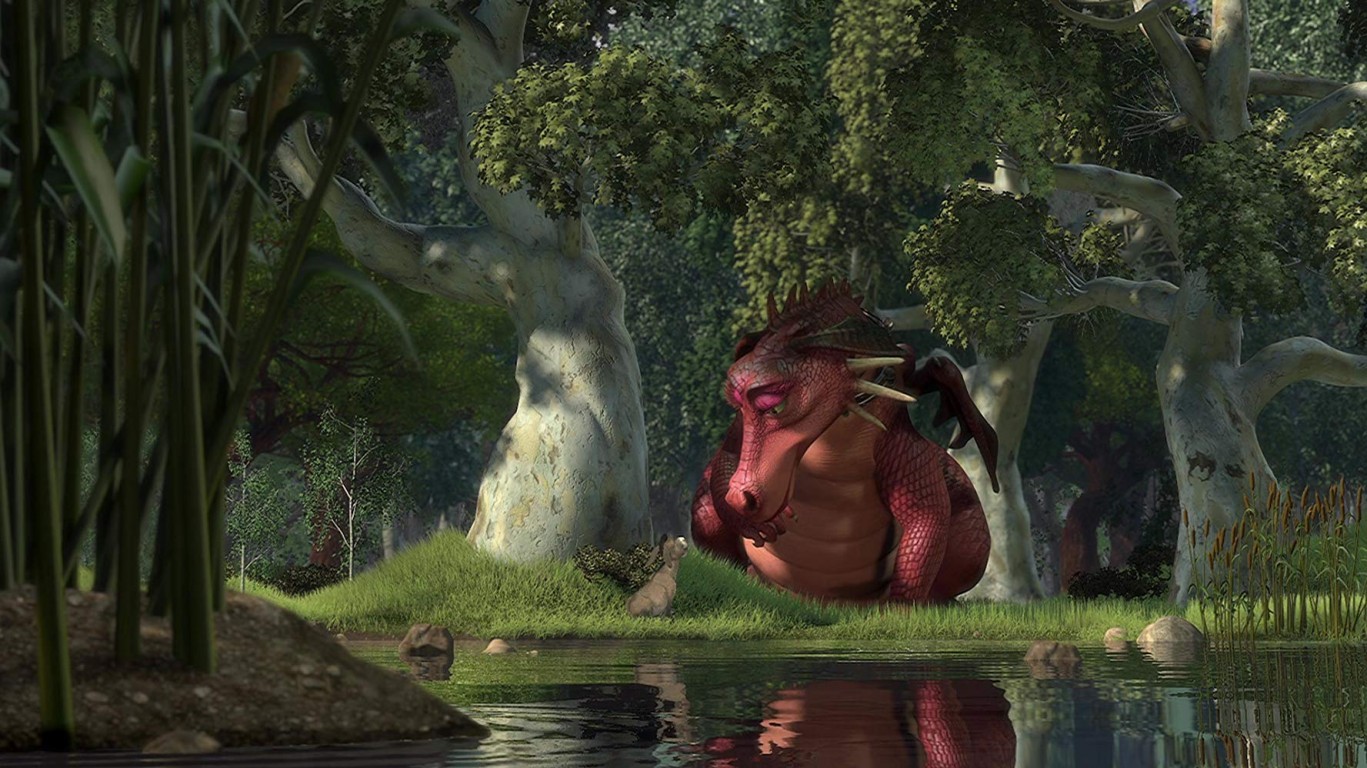
2001
> Biggest summer blockbuster: Shrek
> Domestic gross (adjusted for inflation): $426.1 million
> Domestic gross (unadjusted): $267.7 million
> Production budget (unadjusted): $60.0 million
“Shrek,” the animation film about a lovable ogre, featured the voices of Mike Myers, Eddie Murphy, and Cameron Diaz. It opened May 16 in 2001 and was the top box office film in its opening weekend, with more than $42 million in unadjusted domestic gross.
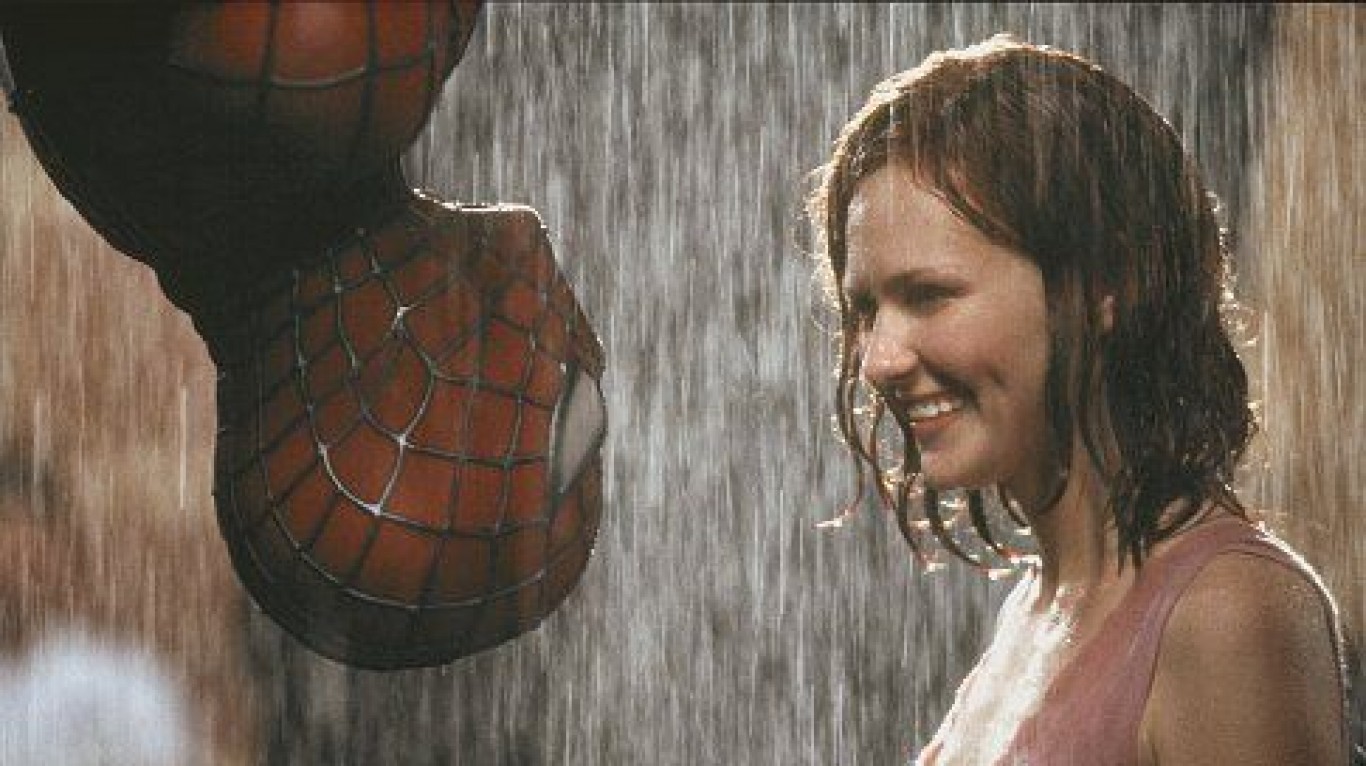
2002
> Biggest summer blockbuster: Spider-Man
> Domestic gross (adjusted for inflation): $626.1 million
> Domestic gross (unadjusted): $403.7 million
> Production budget (unadjusted): $139.0 million
A nerdy high school student is bitten by a genetically enhanced spider, develops special powers, and becomes the superhero we know as Spider-Man. The franchise has had seven films, but the first is still the box office champ. It was released on May 3, rolled up unadjusted domestic gross of almost $115 million on its first weekend, and was the overall top grossing film in 2002.
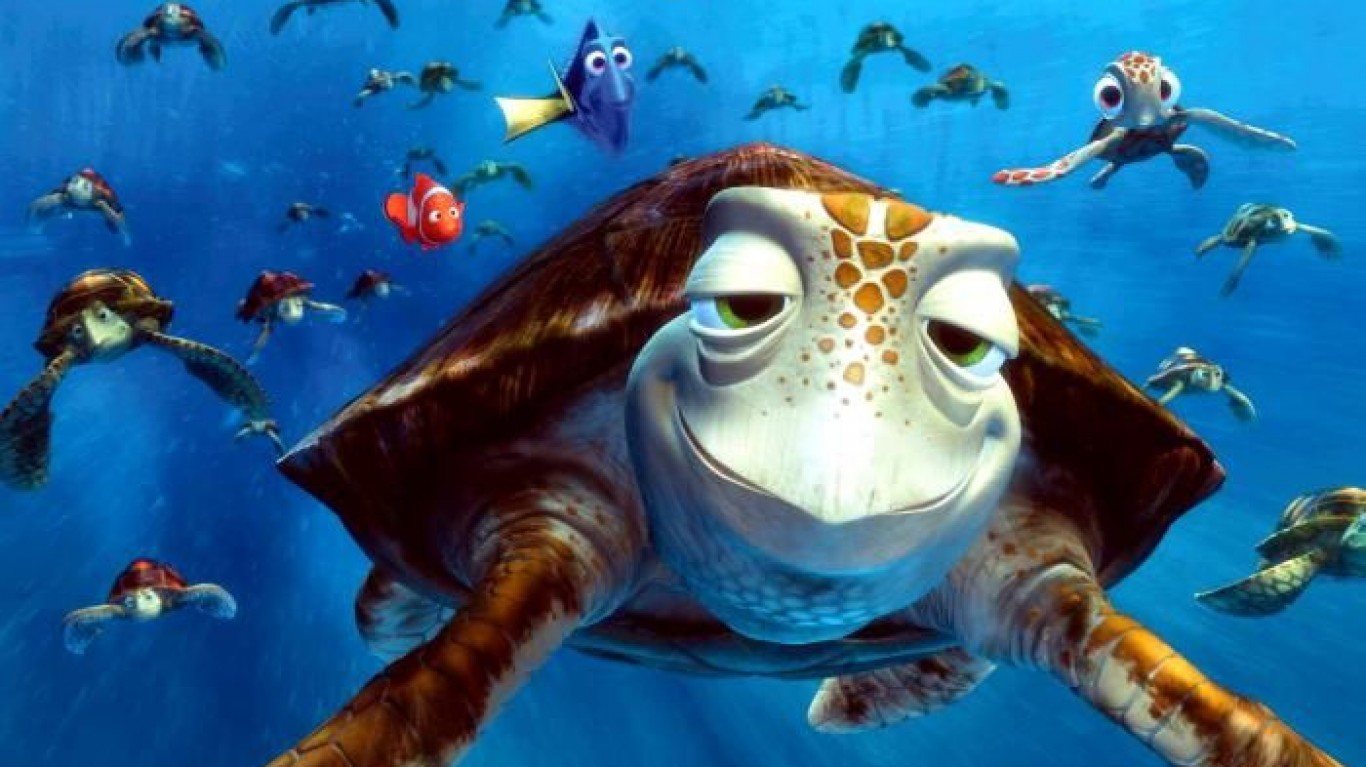
2003
> Biggest summer blockbuster: Finding Nemo
> Domestic gross (adjusted for inflation): $554.9 million
> Domestic gross (unadjusted): $380.8 million
> Production budget (unadjusted): $94.0 million
The Disney animation smash features the voices of Albert Brooks and Ellen DeGeneres. The story is about a clownfish who finds the courage to find his son who gets captured off the Great Barrier Reef. The film opened on May 30 and is currently the 22nd-highest grossing Disney movie of all time.
[in-text-ad-2]
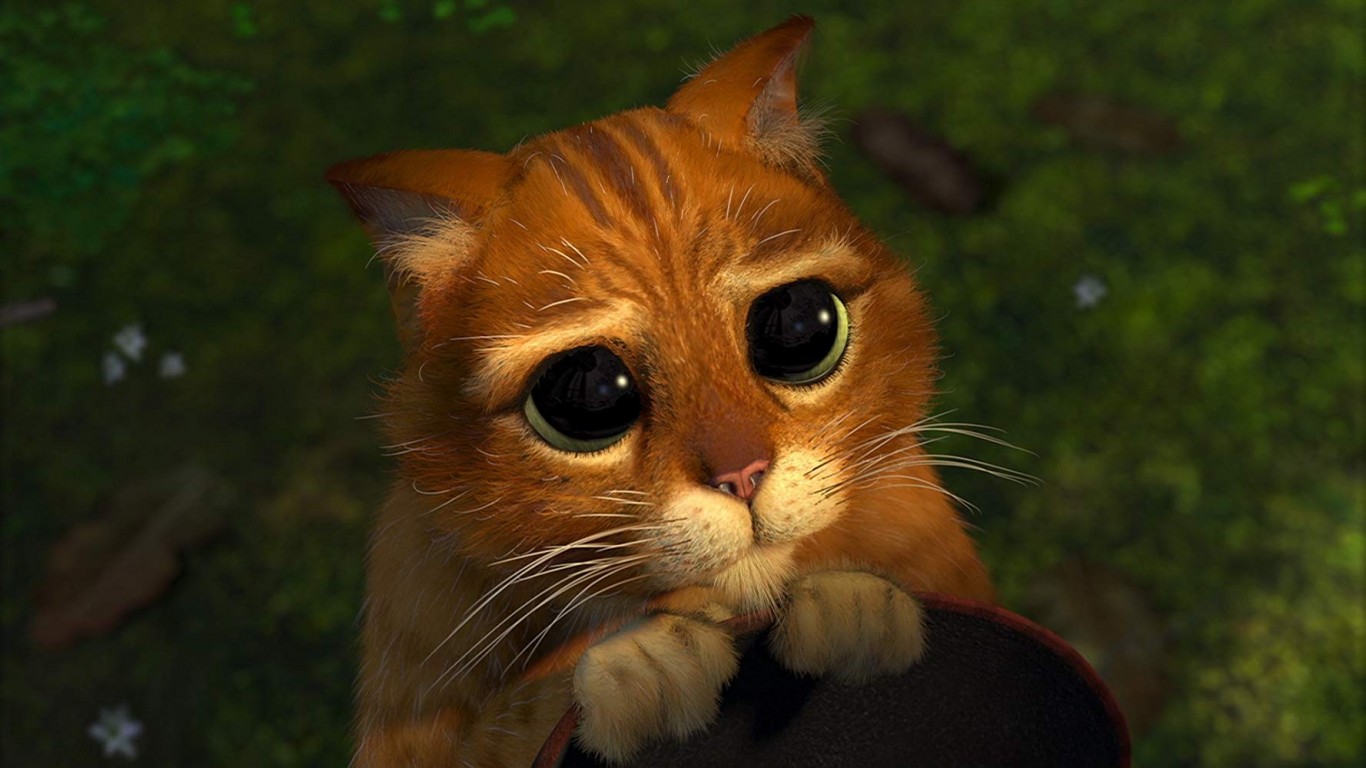
2004
> Biggest summer blockbuster: Shrek 2
> Domestic gross (adjusted for inflation): $640.2 million
> Domestic gross (unadjusted): $441.2 million
> Production budget (unadjusted): $150.0 million
The sequel to “Shrek,” arriving three years after the movie that launched the series, is the highest grossing of the four films in the franchise, totaling more than $441 million unadjusted for inflation. Mike Myers and Cameron Diaz return as the voices of the now-married ogres who have to deal with tension involving family members.
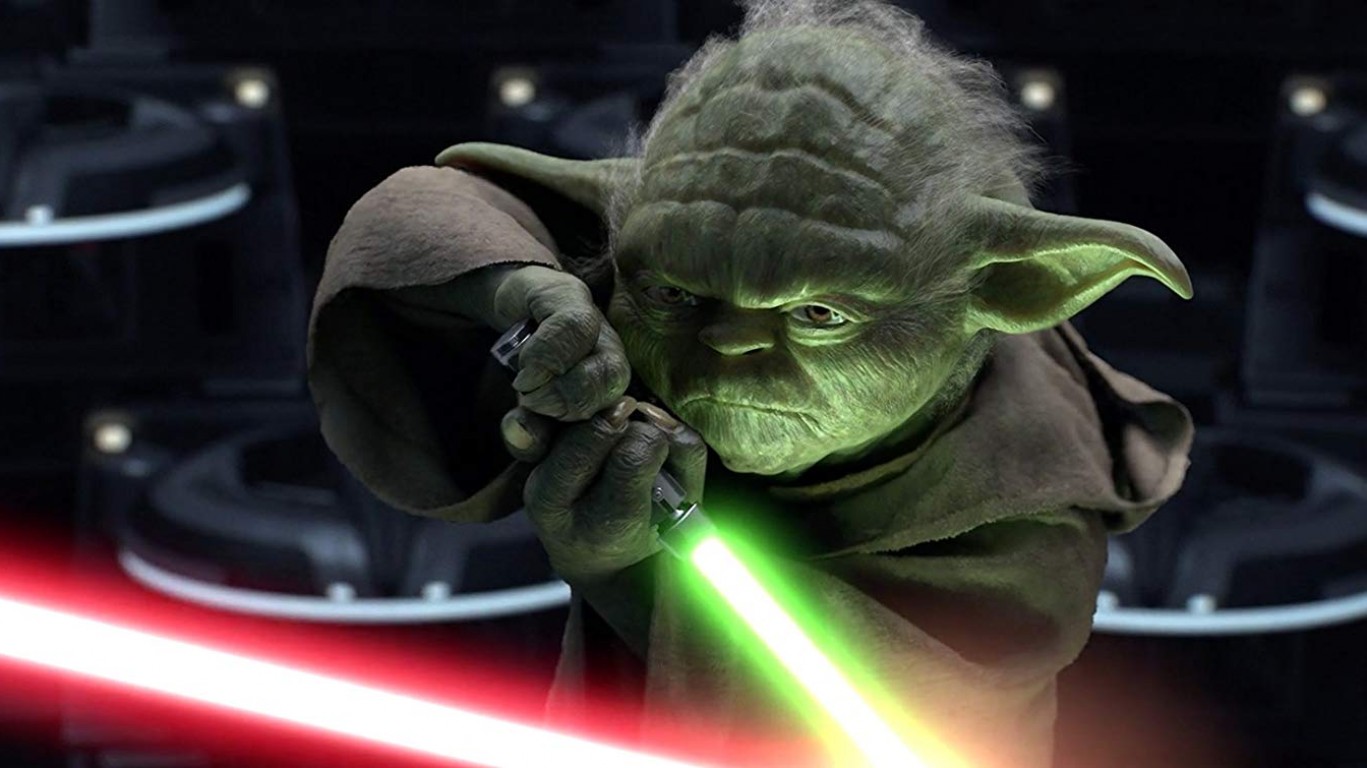
2005
> Biggest summer blockbuster: Star Wars: Episode III – Revenge of the Sith
> Domestic gross (adjusted for inflation): $534.5 million
> Domestic gross (unadjusted): $380.3 million
> Production budget (unadjusted): $113.0 million
“Star Wars: Episode III” was another huge win for director George Lucas, who personally helmed the original “Star Wars” as well as Episodes I and II, all of which performed tremendously well at the box office. “Revenge of the Sith” outgrossed the summer’s second-highest grossing movie — the Steve Spielberg-directed “War of the Worlds” — by nearly $150 million when not adjusting for inflation.
[in-text-ad]
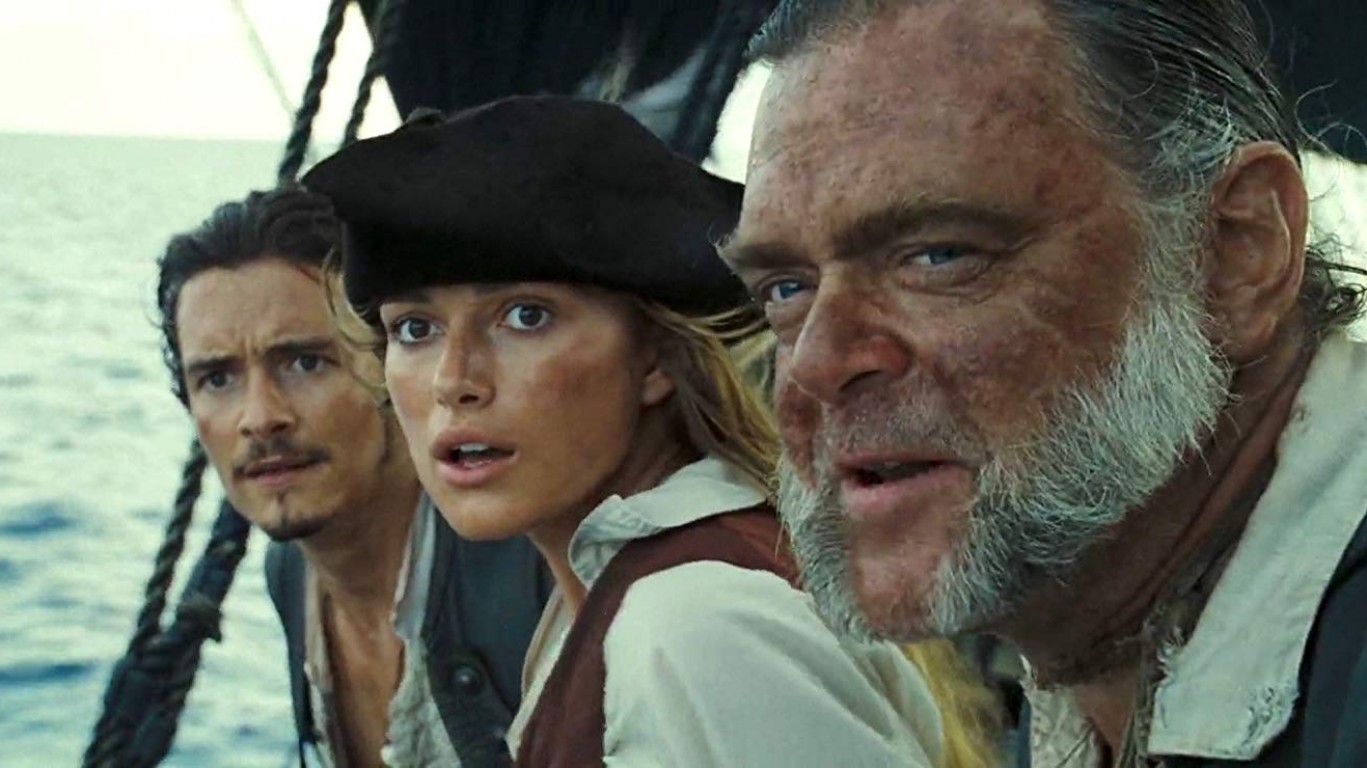
2006
> Biggest summer blockbuster: Pirates of the Caribbean: Dead Man’s Chest
> Domestic gross (adjusted for inflation): $582.3 million
> Domestic gross (unadjusted): $423.3 million
> Production budget (unadjusted): $225.0 million
The second of the five Pirates of the Caribbean movies, all of which were released during summer, is the most lucrative in the series. It opened on July 7 in more than 4,100 theaters, and in its first weekend, “Pirates of the Caribbean: Dead Man’s Chest” grossed $135.6 million at the box office, on its way to a total unadjusted gross of $423.3 million. The film is Disney’s 13th highest-grossing film ever.
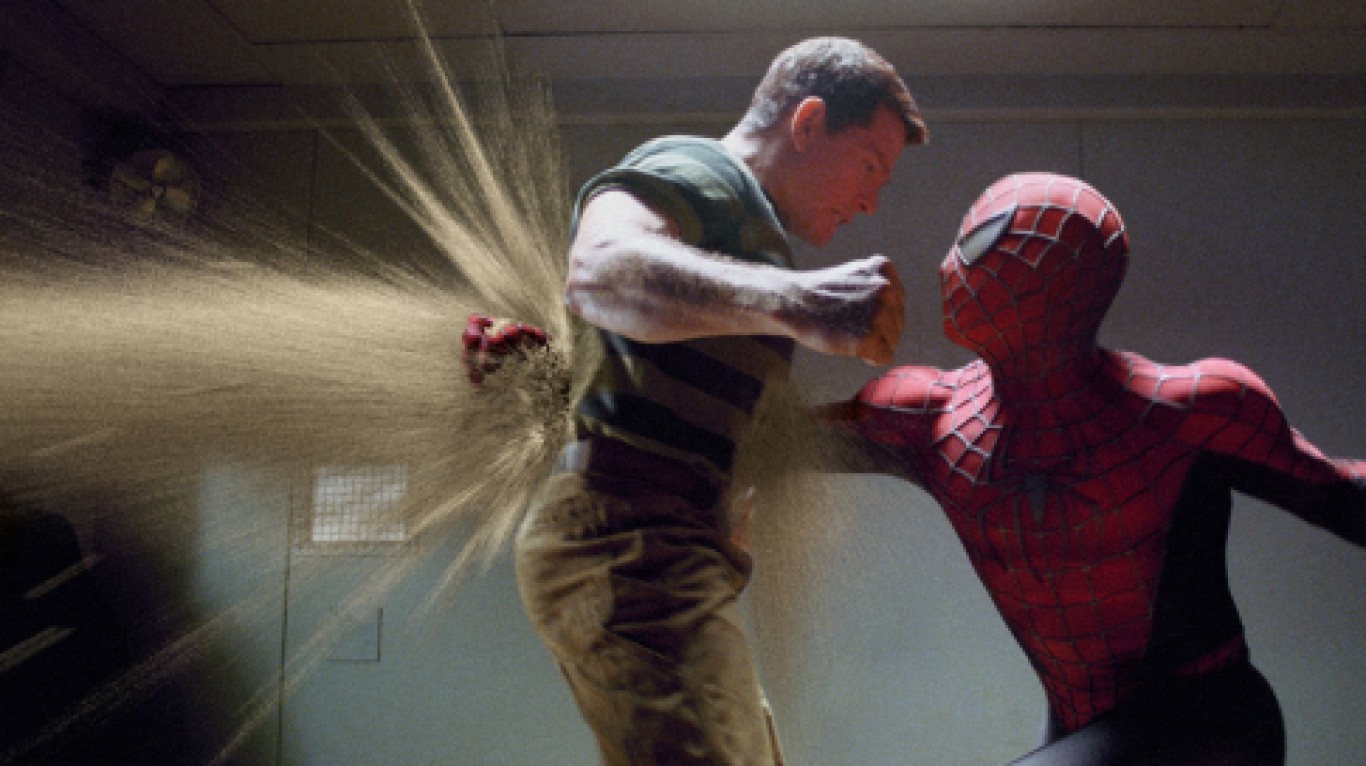
2007
> Biggest summer blockbuster: Spider-Man 3
> Domestic gross (adjusted for inflation): $440.7 million
> Domestic gross (unadjusted): $336.5 million
> Production budget (unadjusted): $258.0 million
In “Spider-Man 3,” the superhero confronts stronger villains and something else — a new suit that augments his powers but brings him to a darker side. Released on May 4, audiences responded positively to Spider-Man’s inner conflict and delivered the strongest opening weekend of any of the seven franchise films, taking in more than $151 million. “Spider-Man 3” was the top grossing film of 2007.
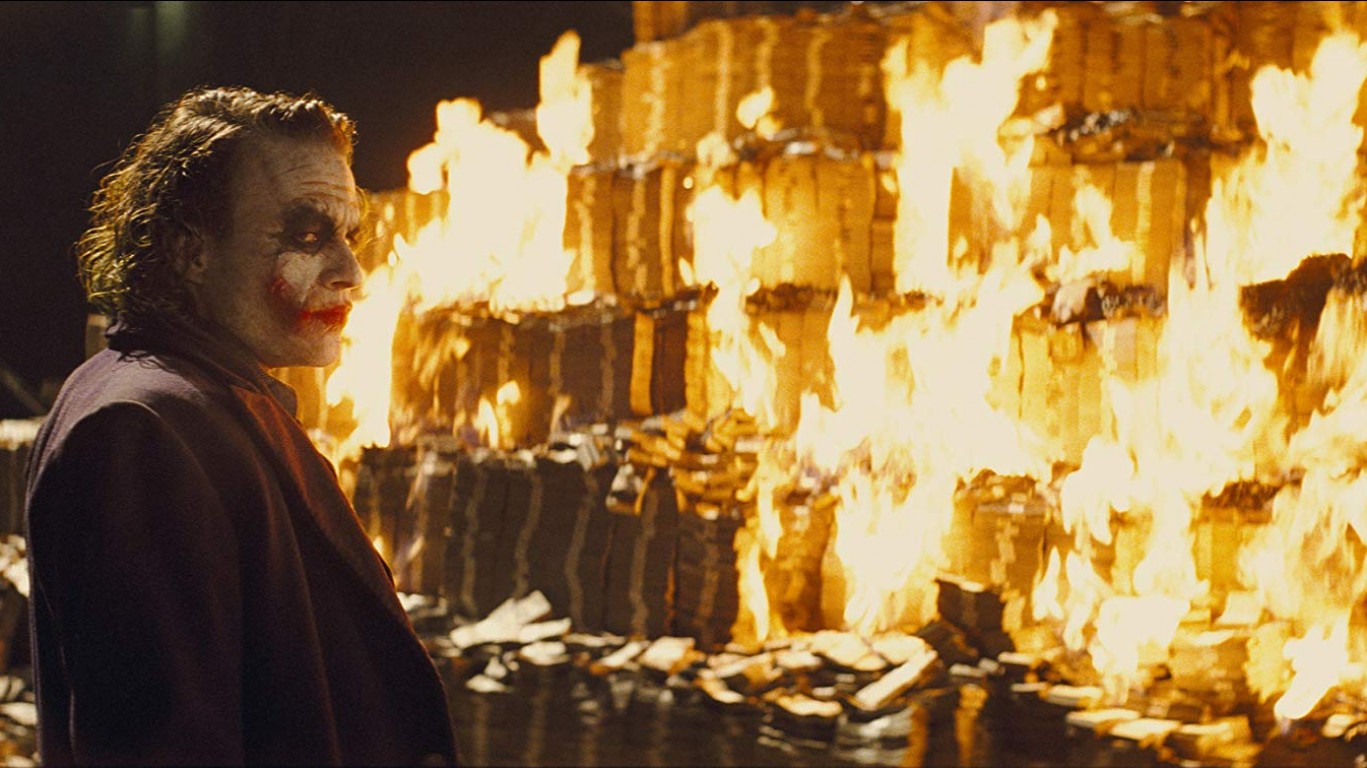
2008
> Biggest summer blockbuster: The Dark Knight
> Domestic gross (adjusted for inflation): $671.3 million
> Domestic gross (unadjusted): $535.2 million
> Production budget (unadjusted): $185.0 million
Warner Bros. chalked up 2008’s top grossing movie that featured the brooding superhero played by Christian Bale and a demented villain played by Heath Ledger, who won a posthumous Oscar for Best Supporting Actor. “The Dark Knight” opened on July 18 in more than 4,300 theaters and tallied $158.4 million in domestic box office gross on its opening weekend, almost covering its production budget of $185.0 million.
[in-text-ad-2]
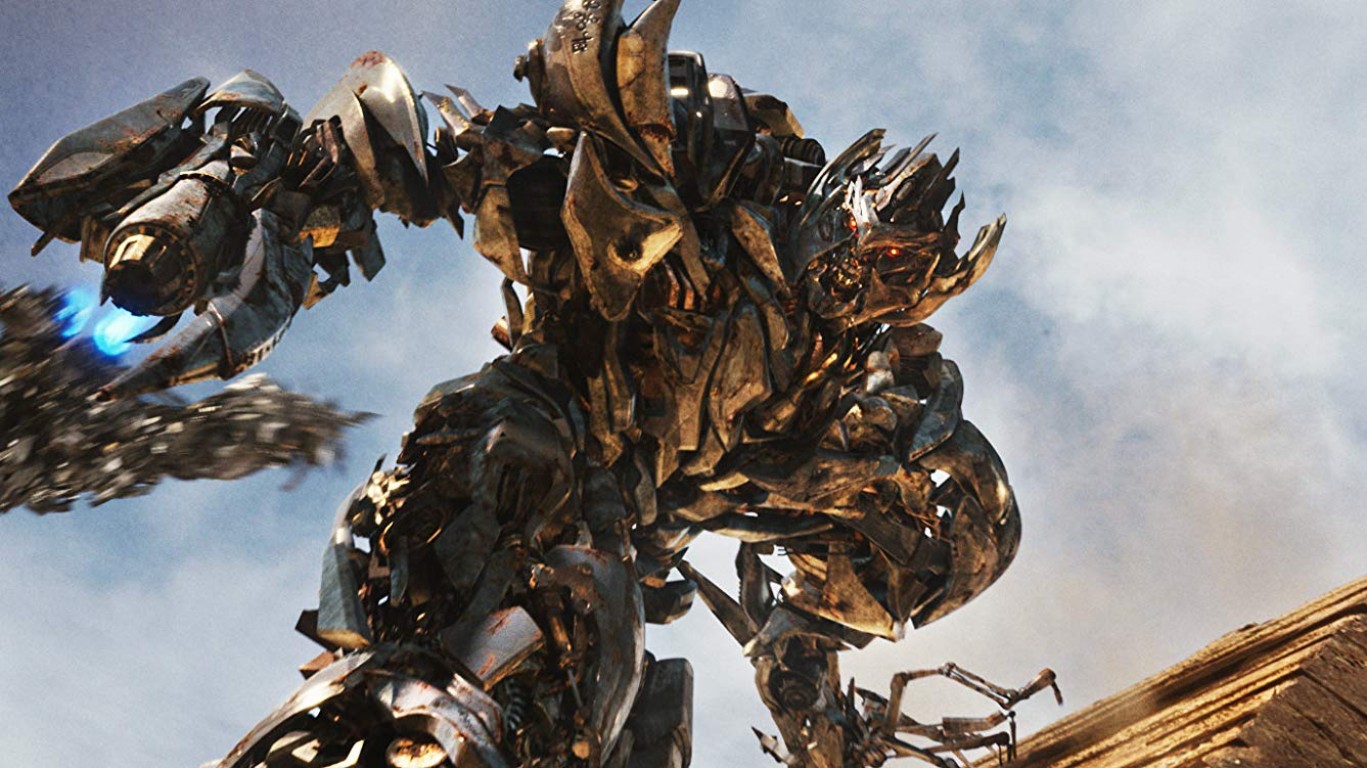
2009
> Biggest summer blockbuster: Transformers: Revenge of the Fallen
> Domestic gross (adjusted for inflation): $485.6 million
> Domestic gross (unadjusted): $402.1 million
> Production budget (unadjusted): $200.0 million
“Transformers: Revenge of the Fallen,” directed by Michael Bay, opened on June 24. It had the second-biggest opening of any movie in 2009, after “The Twilight Saga: New Moon.” It would be the second-highest grossing movie in 2009 behind “Avatar” and the biggest hit of the Transformers series. Shia LaBeouf and Megan Fox star in the film that launched the Transformers series, though both actors’ careers would flounder shortly afterward.
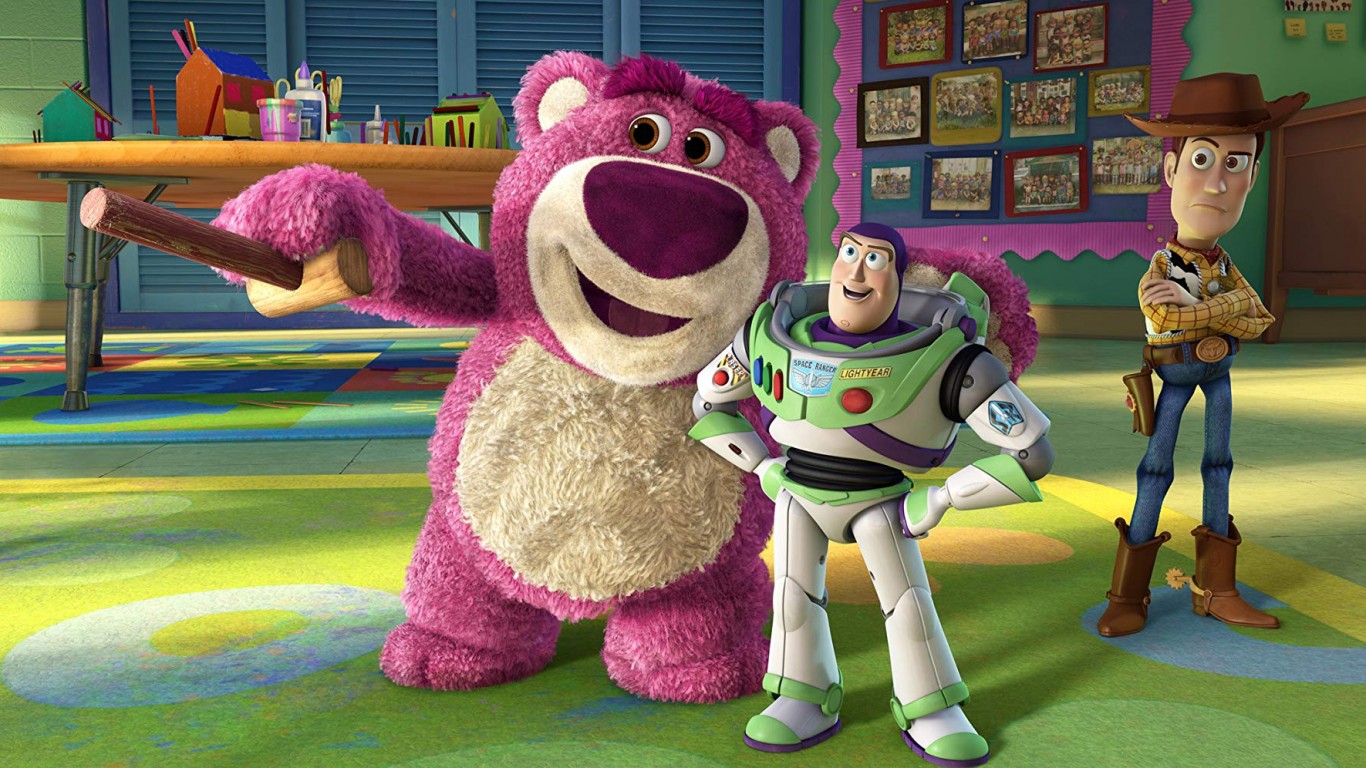
2010
> Biggest summer blockbuster: Toy Story 3
> Domestic gross (adjusted for inflation): $480.6 million
> Domestic gross (unadjusted): $415.0 million
> Production budget (unadjusted): $200.0 million
In the animated film “Toy Story 3,” the toys are mistakenly taken to a daycare center instead of an attic, and Woody (Tom Hanks) has to convince the disconsolate toys that they have not been abandoned. The film was released on June 18, the only one of the three in the series so far to be released for the summer, and was No. 1 at the box office on its opening weekend. It would become the top grossing movie of 2010.
[in-text-ad]
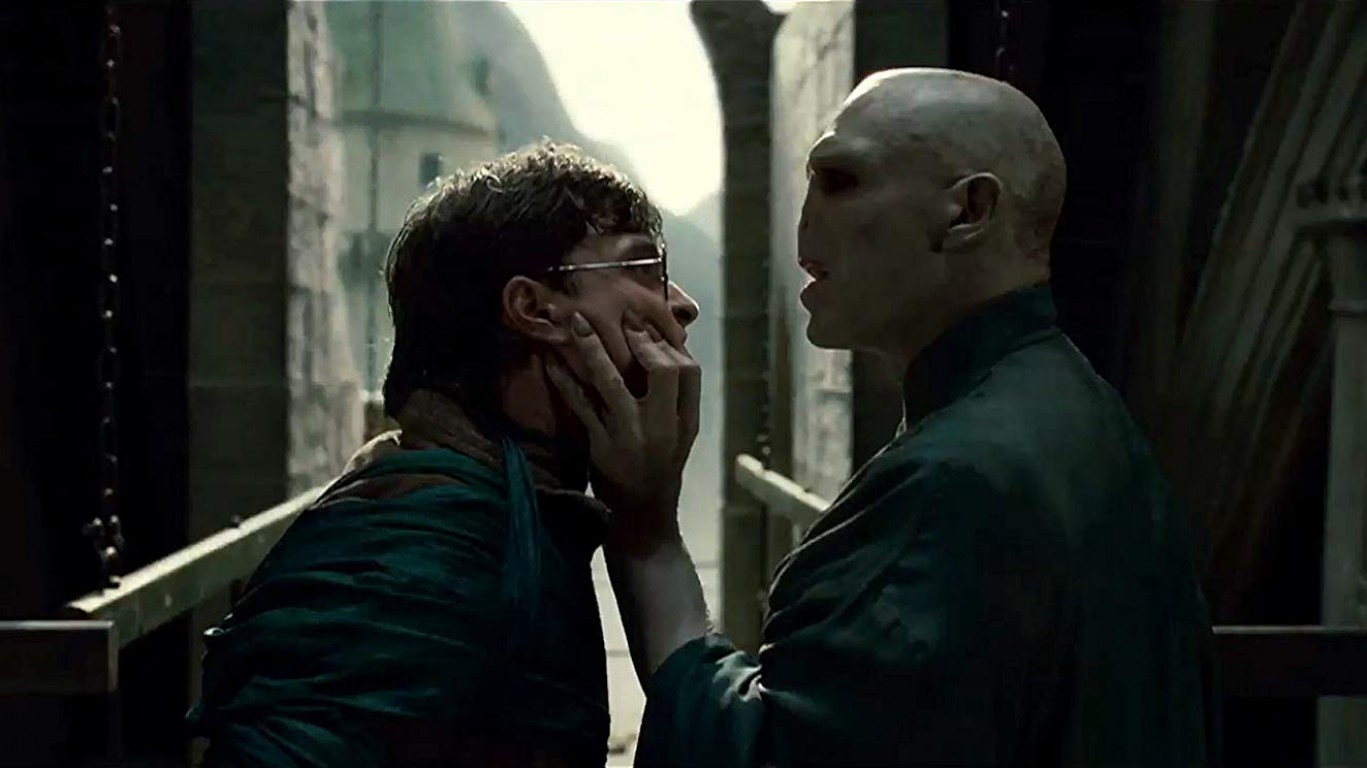
2011
> Biggest summer blockbuster: Harry Potter and the Deathly Hallows Part 2
> Domestic gross (adjusted for inflation): $432.6 million
> Domestic gross (unadjusted): $381.2 million
> Production budget (unadjusted): $125.0 million
J.K. Rowling’s Wizarding World is one of the most successful movie franchises ever. The series’ crown jewel is “Harry Potter and the Deathly Hallows Part 2,” which grossed nearly $90 million more than its “Part 1,” which was released just one year prior. Other popular films released in Summer 2011 were “Transformers: Dark of the Moon” and “The Hangover Part II.”
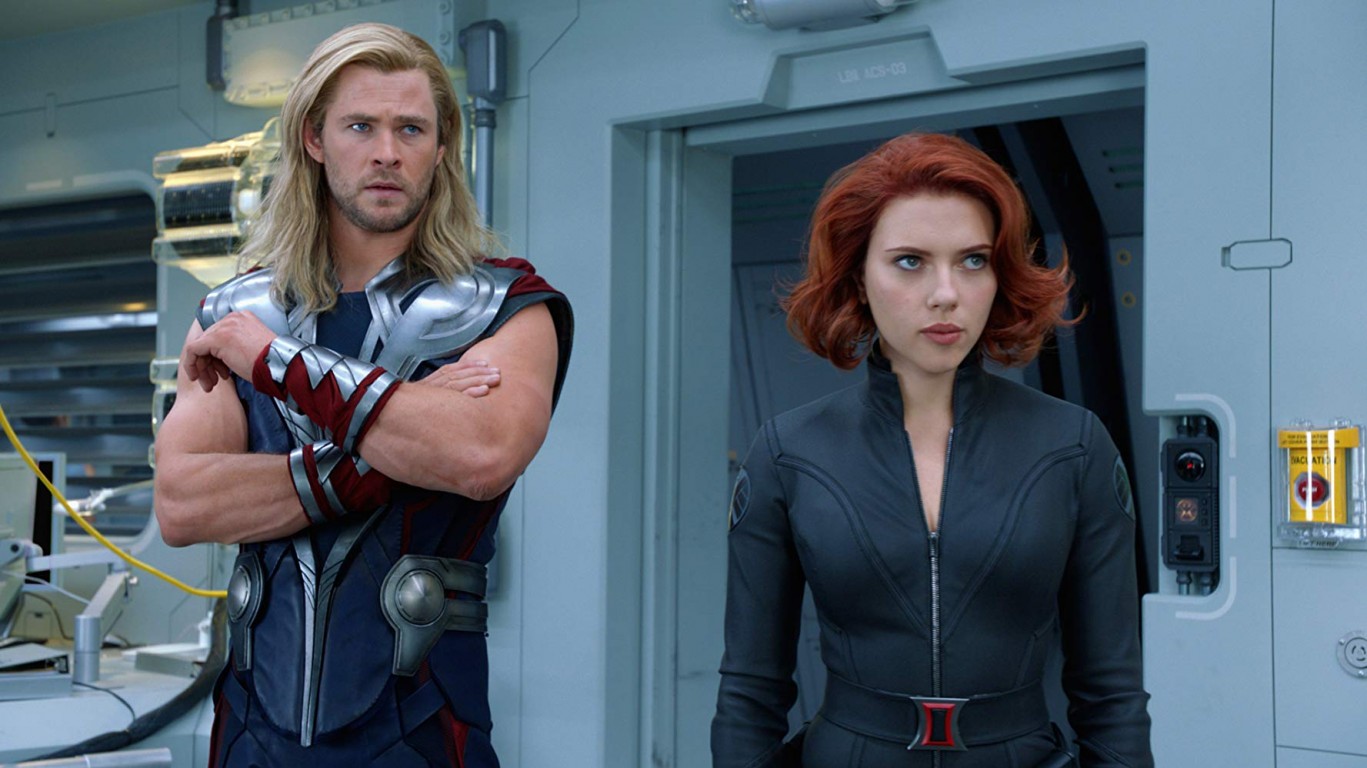
2012
> Biggest summer blockbuster: The Avengers
> Domestic gross (adjusted for inflation): $692.7 million
> Domestic gross (unadjusted): $623.4 million
> Production budget (unadjusted): $220.0 million
Marvel’s “The Avengers” was a huge success at the box office, becoming not only the biggest film of summer 2012, but also of the entire year. When adjusted for ticket price inflation, it is the top grossing superhero-themed summer blockbuster ever. Director Joss Whedon would again strike gold three years later with “Avengers: Age of Ultron.”

2013
> Biggest summer blockbuster: Iron Man 3
> Domestic gross (adjusted for inflation): $440.1 million
> Domestic gross (unadjusted): $409.0 million
> Production budget (unadjusted): $200.0 million
The seventh entry to the Marvel Cinematic Universe franchise, and the third Iron Man movie, led the summer box office in 2013. It took in about $40 million more than the popular animated movie “Despicable Me 2,” which came out that July. The one movie to gross more in 2013 was “The Hunger Games: Catching Fire.”
[in-text-ad-2]
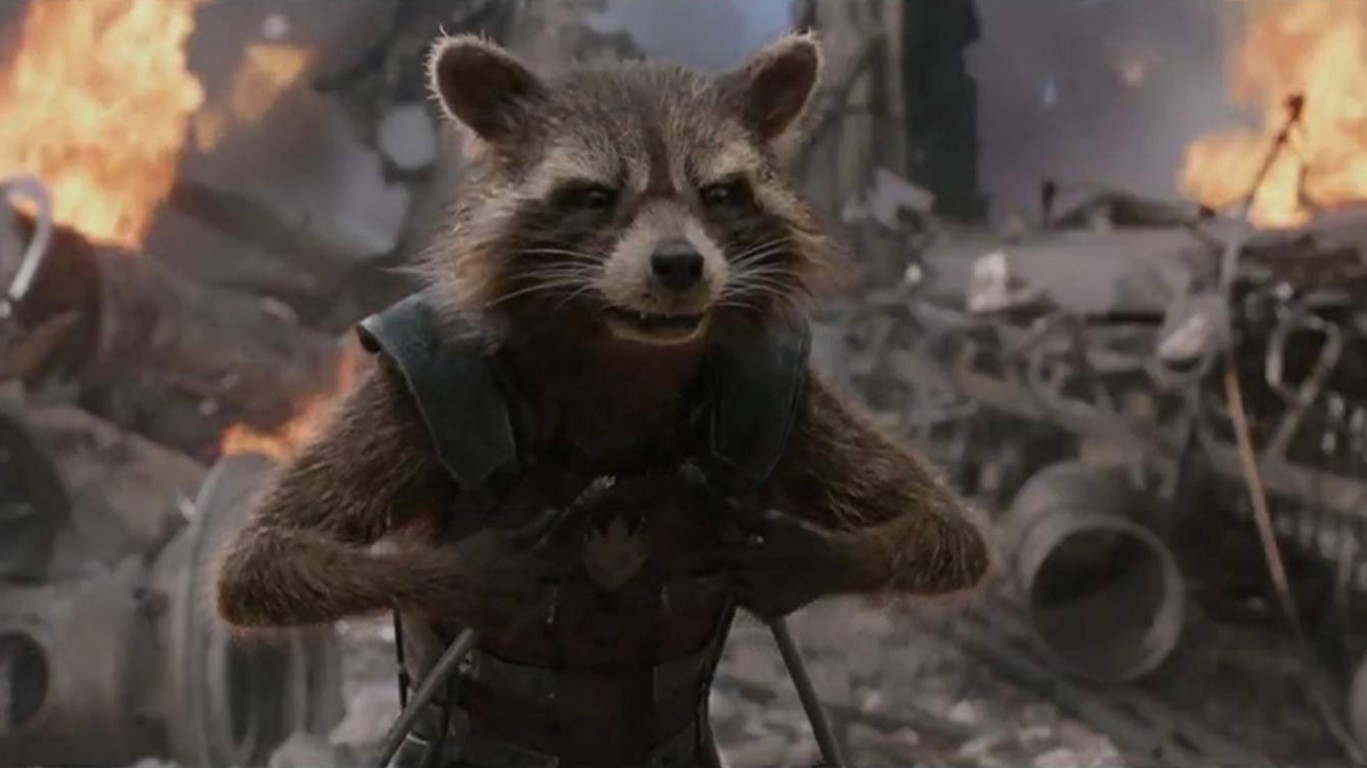
2014
> Biggest summer blockbuster: Guardians of the Galaxy
> Domestic gross (adjusted for inflation): $371.0 million
> Domestic gross (unadjusted): $333.2 million
> Production budget (unadjusted): $170.0 million
“Guardians of the Galaxy” grossed less than half of fellow Marvel Cinematic Universe film “Avengers: Endgame” at the box office, released earlier this year. Despite this, the movie’s adjusted $371 million pull was the most of any movie during summer 2014. It is also the only box office-topping summer blockbuster since 1975 to be released during the month of August.

2015
> Biggest summer blockbuster: Jurassic World
> Domestic gross (adjusted for inflation): $712.2 million
> Domestic gross (unadjusted): $652.3 million
> Production budget (unadjusted): $150.0 million
Were it not for the titanic box office performance of “Star Wars: The Force Awakens,” “Jurassic World” would have been the box office champion for 2015. The cloned dinosaur flick opened on June 12 and took in more than $208 million in its first weekend, the biggest summer weekend opening ever. “Jurassic World” is by far the highest grossing film of the five-movie dinosaur franchise when not adjusting for inflation. In 2019 dollars, “Jurassic Park” takes the top spot.
[in-text-ad]
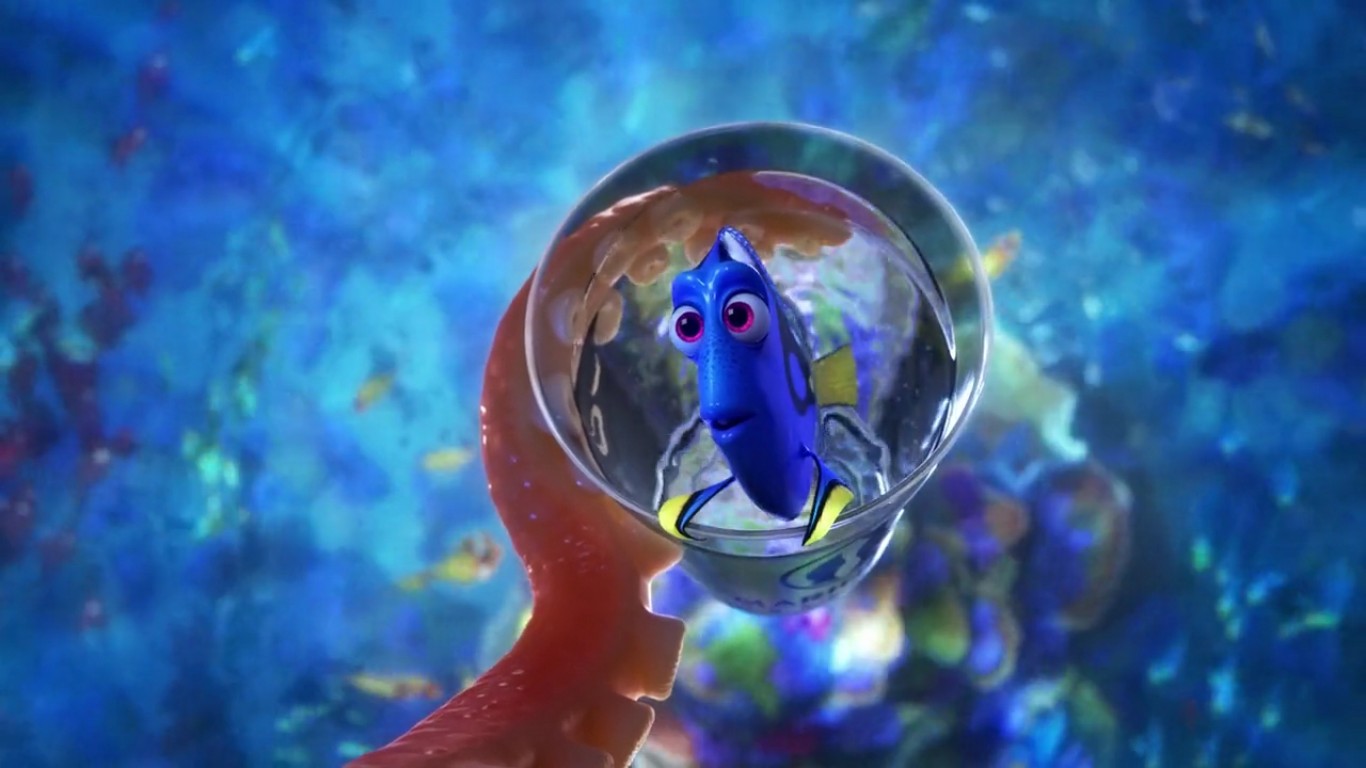
2016
> Biggest summer blockbuster: Finding Dory
> Domestic gross (adjusted for inflation): $506.0 million
> Domestic gross (unadjusted): $486.3 million
> Production budget (unadjusted): $200.0 million
Pixar fans waited 13 years after the release of “Finding Nemo” in 2003 for its sequel. “Finding Dory” took in less money at the box office than “Nemo.” Still, it was by far the top grossing movie of summer 2016. Audiences love for the delightfully forgetful fish Dory almost took the film to No. 1 for the entire year, yet “Rogue One,” released in December, surpassed it at the box office.
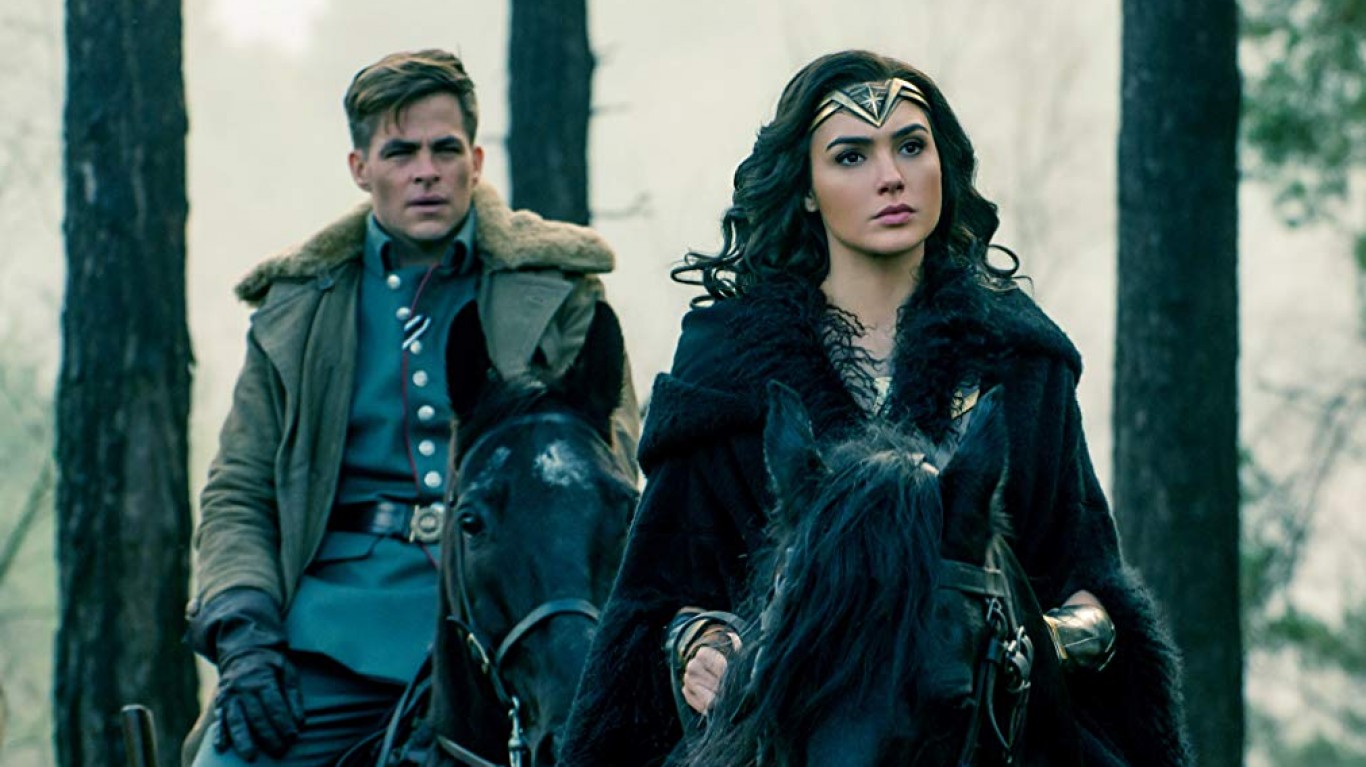
2017
> Biggest summer blockbuster: Wonder Woman
> Domestic gross (adjusted for inflation): $415.5 million
> Domestic gross (unadjusted): $412.6 million
> Production budget (unadjusted): $149.0 million
“Wonder Woman,” the superhero played by Israeli actress Gal Gadot, was directed by Patty Jenkins. The movie opened on June 2 and took in more than $103 million for Warner Bros. The plot revolves around an Amazonian warrior who is destined to save the world from destruction during World War I.
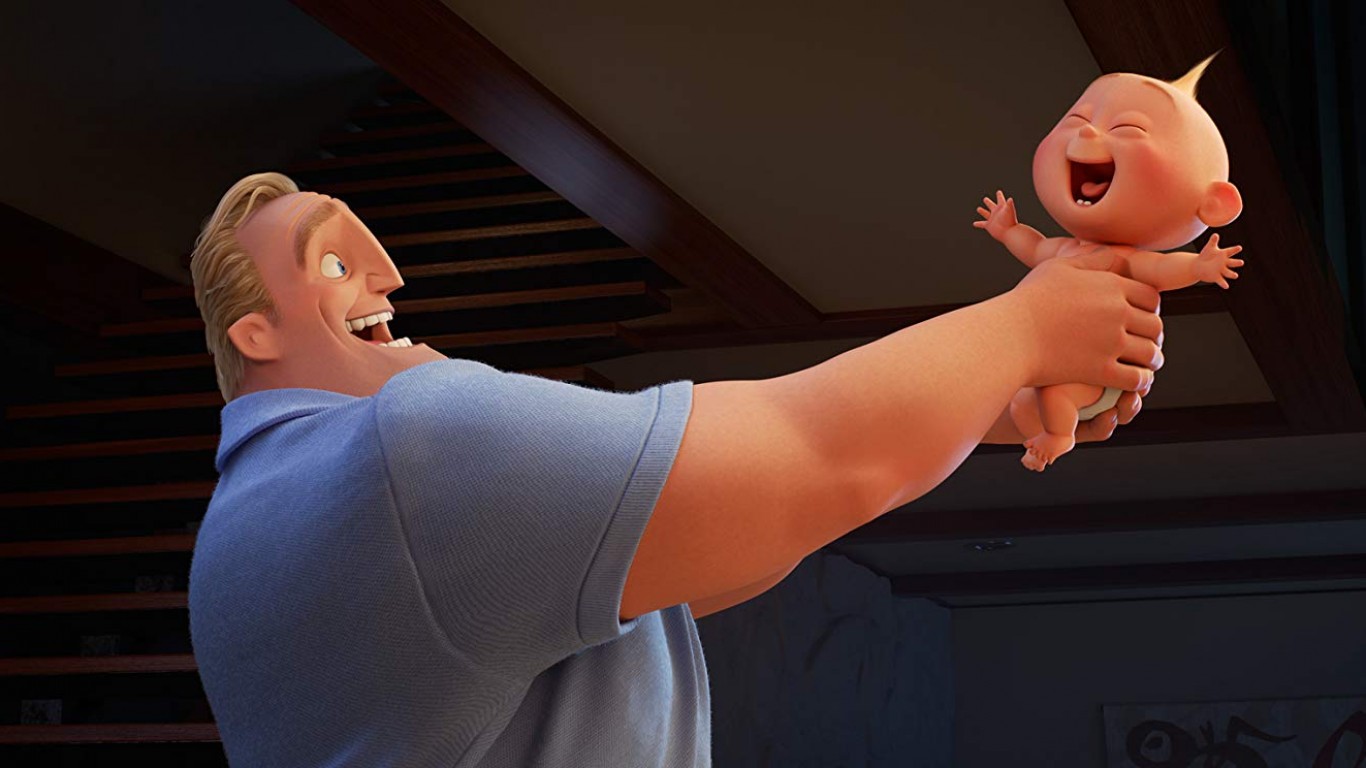
2018
> Biggest summer blockbuster: Incredibles 2
> Domestic gross (adjusted for inflation): $597.4 million
> Domestic gross (unadjusted): $608.6 million
> Production budget (unadjusted): $200.0 million
Pixar films have historically done well at the box office, and 2018’s “Incredibles 2” is the company’s top grossing movie, even when adjusting for inflation. The sequel to the 2004 film about a family of crime-fighting superheroes was victorious at the summer blockbuster. It was, however, topped by two other movies released in 2018 outside of summer: “Black Panther” and “Avengers: Infinity War.”
[in-text-ad-2]

2019 (so far)
> Biggest summer blockbuster: Aladdin
> Domestic gross (adjusted for inflation): $270.3 million (so far)
> Domestic gross (unadjusted): $270.3 million (so far)
> Production budget (unadjusted): $183.0 million
Disney’s live action “Aladdin” is shaping up to be the biggest movie of this summer. It took in more than $91 million in North America over Memorial Day weekend, outperforming the studio’s “Solo: A Star Wars Story,” which was released the previous year. As of this date, it’s the sixth highest grossing film of the last 365 days.
After two decades of reviewing financial products I haven’t seen anything like this. Credit card companies are at war, handing out free rewards and benefits to win the best customers.
A good cash back card can be worth thousands of dollars a year in free money, not to mention other perks like travel, insurance, and access to fancy lounges.
Our top pick today pays up to 5% cash back, a $200 bonus on top, and $0 annual fee. Click here to apply before they stop offering rewards this generous.
Flywheel Publishing has partnered with CardRatings for our coverage of credit card products. Flywheel Publishing and CardRatings may receive a commission from card issuers.
Thank you for reading! Have some feedback for us?
Contact the 24/7 Wall St. editorial team.